|

HOME |
ABOUT | INDEX |
NEWS |
FACEBOOK |
CONTACT
COLLEGE
University | Higher
Education | Campus Issues
College
Experience for LGBTQ Students
Out And On
Campus...
The college experience for LGBTQ students is often a
transformative period of identity exploration and
community building, yet it remains marked by significant
disparities in safety and mental well-being compared to
their non-LGBTQ peers.
--Identity Exploration: For many, college provides the
independence needed to explore gender and sexuality away
from home constraints.
--Finding Community: Students often seek out "safe
spaces" such as LGBTQ resource centers, pride
organizations, and inclusive student clubs to combat
isolation.
--Mental Health Challenges: Approximately 35% of LGBTQ
students report poor mental health during college, a
rate significantly higher than their non-LGBTQ peers.
--Safety and Harassment: Roughly 33% of LGBTQ students
at four-year institutions report experiencing bullying,
harassment, or assault.
--Financial and Family Stress: Coming out can lead to
family rejection, which may jeopardize financial support
and access to scholarships or loans requiring parental
signatures.
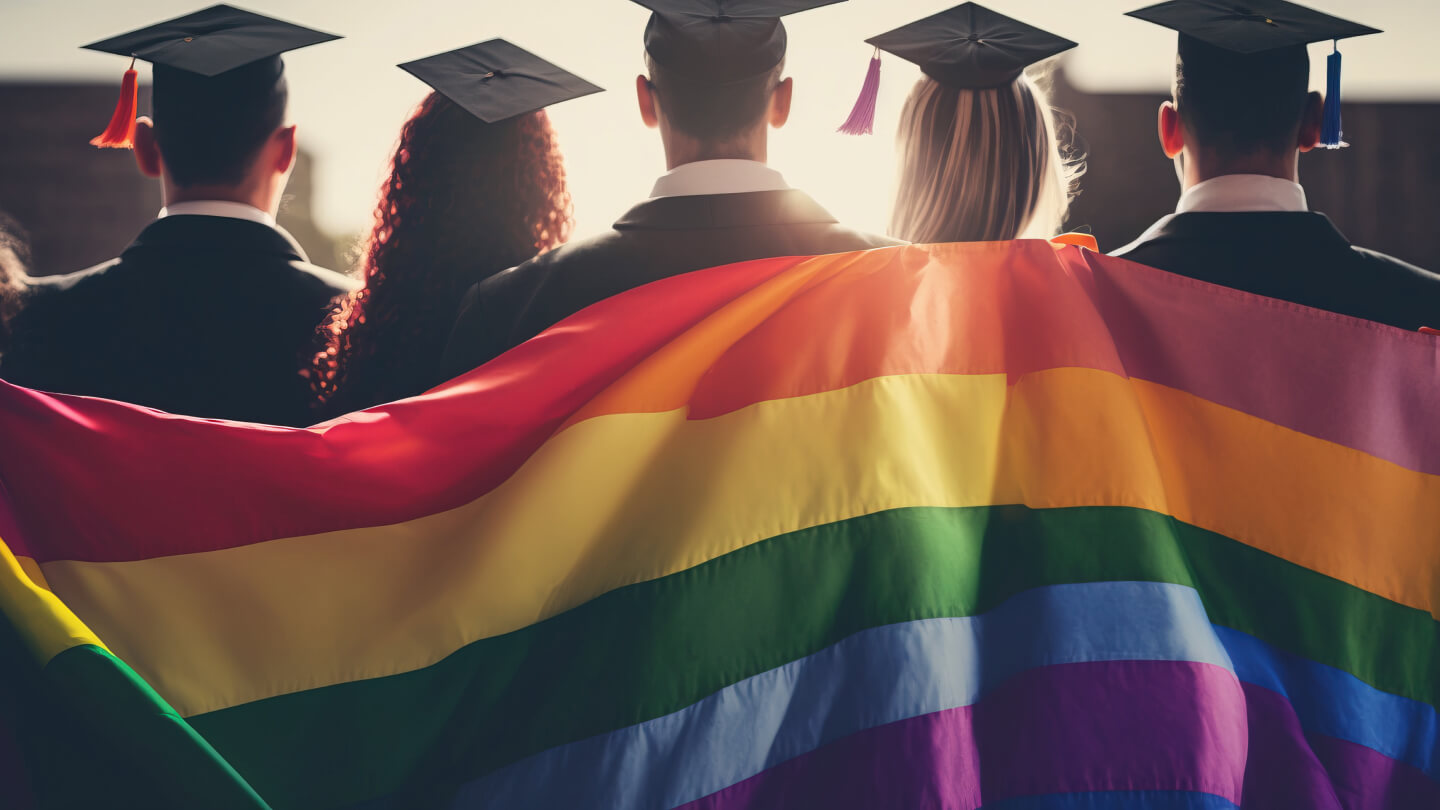
Institutional Support and Advocacy
--Resource Availability: Inclusive campuses often offer
gender-neutral housing, LGBTQ-informed health services,
and supportive faculty mentors.
--Campus Climate: Schools with high Campus Pride Index
ratings generally provide more structured support,
though many students still report hearing anti-LGBTQ
remarks from staff or administrators.
--Student Activism: LGBTQ student leaders frequently
advocate for policy changes, such as trans-inclusive
healthcare and gender-affirming restrooms
College Cleverly Keeps its LGBTQ Center Open Despite
Laws Against DEI
What to Know about DEI Bans at Colleges
Surge of DEI Cuts Hits Colleges Across the US
Schools and Colleges Forced to Eliminate DEI Programs
Over 50 Universities Under Investigation as Part of
Trump's Anti-DEI Crackdown
Universities Need to Mount an Offensive for Diversity,
Equity, and Inclusion
College Students
Claims Discrimination for Failed Paper
Samantha Fulnecky submits personal opinion and biblical
concepts on academic essay...
At the
University of Oklahoma, junior psychology major Samantha
Fulnecky says she was given a zero on her gender essay
simply because she expressed her Christian convictions.
She is claiming religious bias for her failing essay in
which she called multiple genders demonic. The
instructor was put on administrative leave after a
student claimed she was discriminated against for being
a Christian.
Fulnecky's psychology assignment was to write a 650-word
reaction to an article about gender expectations in
society. "The article discussed peers using teasing as a
way to enforce gender norms," Fulnecky wrote. "I do not
necessarily see this as a problem. God made male and
female and made us differently from each other on
purpose and for a purpose. God is very intentional with
what He makes, and I believe trying to change that would
only do more harm." In her essay, Fulnecky wrote that
she believes that "eliminating gender in our society
would be detrimental, as it pulls us farther from God's
original plan for humans."
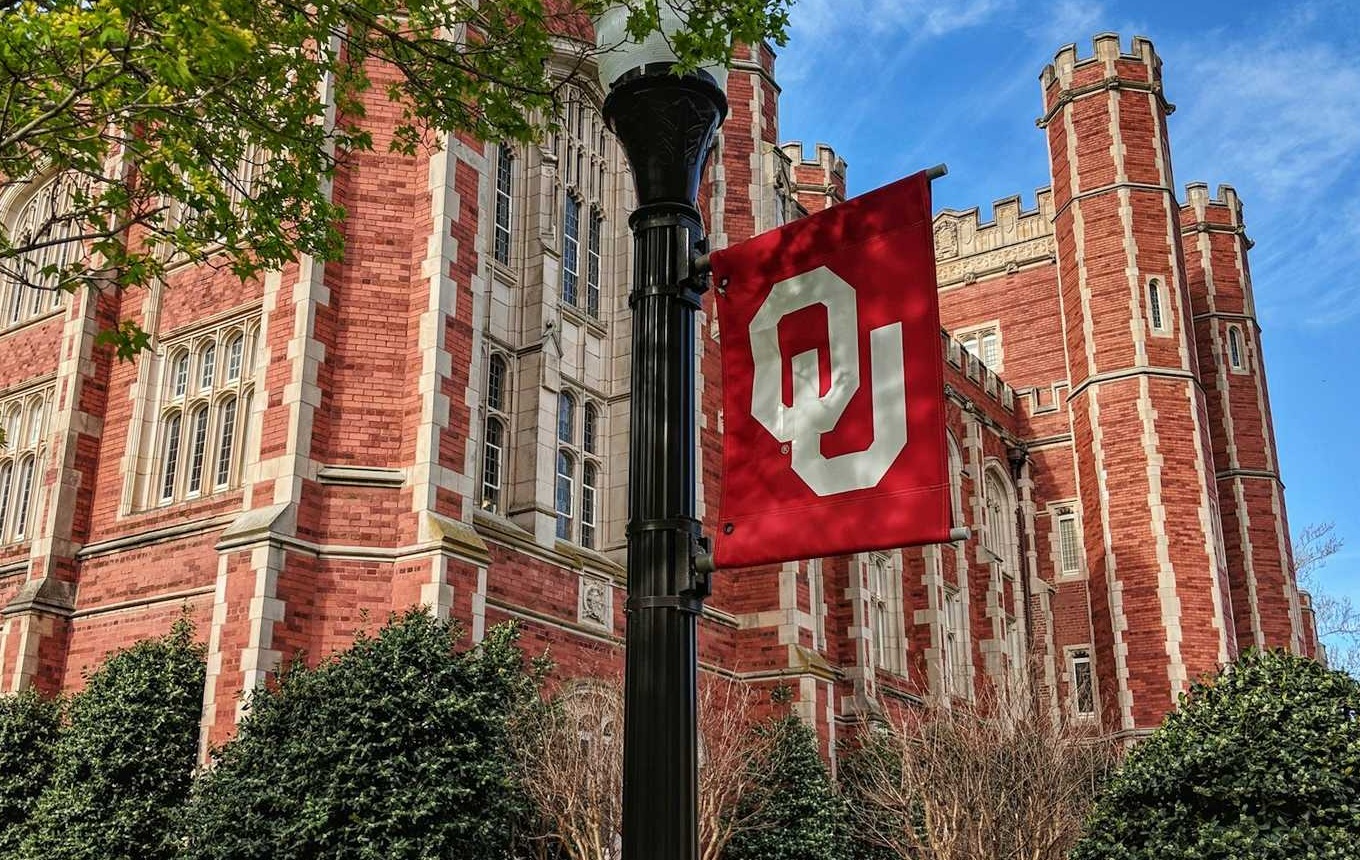

Read the Full Essay
University of Oklahoma Student Claims
Religious Discrimination Over Failed Essay
From Riley Gaines to Samantha Fulnecky, Conservatives
are Making Their Failures Everyone Else's Problem
Samantha Fulnecky on FoxNews
Student Cries Discrimination for Failing Grade on Essay
Calling Transness "Demonic"
Oklahoma
Republicans Are Calling Out Samantha Fulnecky
Mr Williams Reacts to Sam Fulnecky
Right-Wingers Are Up In Arms Over A College Student
Getting An F On Her Paper
University of Oklahoma Students March in Support of
Suspended instructor
Who is Kristi Fulnecky?
"I am not
deducting points because you have certain beliefs, but
instead I am deducting points for you posting a reaction
paper that does not answer the questions for this
assignment..."
The 2014
article, "Relations Among Gender Typicality, Peer
Relations, and Mental Health During Early Adolescence,"
by Jennifer A Jewell and Christia Spears Brown, looked
at how middle school students were seen as popular or
teased for being different based on gender stereotypes.
Some stereotypes were that boys were tough and athletic,
while girls were attractive, fashionable and liked to
gossip.
Her class
was prompted to react to "a psychology article on gender
stereotypes in middle school students and how it affects
their mental health." Instead, her essay centered around
God and the Bible. Her paper includes lines like, "The
article discussed peers using teasing as a way to
enforce gender norms. I do not necessarily see this as a
problem," and "Society pushing the lie that there are
multiple genders and everyone should be whatever they
want to be is demonic." She also argued, "Women
naturally want to do womanly things because God created
us with those womanly desires in our hearts." She does
not formally use the Bible as a source by quoting it,
but rather paraphrases her interpretations.
"Society pushing the lie that there are multiple genders
and everyone should be whatever they want to be is
demonic and severely harms American youth," Fulnecky
wrote. "I do not want kids to be teased or bullied in
school. However, pushing the lie that everyone has their
own truth and everyone can do whatever they want and be
whoever they want is not biblical whatsoever."
"The
academic quality of the essay written by Samantha
Fulnecky is indefensible and the professor's failing
grade is demonstrably correct. We should be engaged in
substantive intellectual battles, not generating outrage
over an earned poor grade."
-Oklahoma Federation of College Republicans

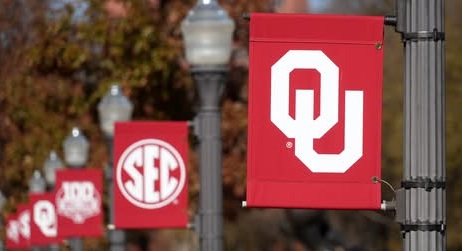
Read the Full Essay
University of Oklahoma Student Claims
Religious Discrimination Over Failed Essay
From Riley Gaines to Samantha Fulnecky, Conservatives
are Making Their Failures Everyone Else's Problem
Samantha Fulnecky on FoxNews
Student Cries Discrimination for Failing Grade on Essay
Calling Transness "Demonic"
Oklahoma
Republicans Are Calling Out Samantha Fulnecky
Mr Williams Reacts to Sam Fulnecky
Right-Wingers Are Up In Arms Over A College Student
Getting An F On Her Paper
University of Oklahoma Students March in Support of
Suspended instructor
Who is Kristi Fulnecky?
"What is really on trial here is not Fulnecky’s faith
but whether facts still matter in public education."
In written comments, the instructor said that the essay
didn't receive a failing grade for Fulnecky's religious
faith, but because the paper didn't follow what was
assigned. "I am not deducting points because you have
certain beliefs, but instead I am deducting points for
you posting a reaction paper that does not answer the
questions for this assignment, contradicts itself,
heavily uses personal ideology over empirical evidence
in a scientific class, and is at times offensive," the
instructor wrote. The instructor also said that the
essay wasn't the "appropriate time or place" to reflect
on personal values.
"I encourage all students to question or challenge the
course material with other empirical findings or
testable hypotheses, but using your own personal beliefs
to argue against the findings of not only this article,
but the findings of countless articles across
psychology, biology, sociology, is not best practice,"
the instructor wrote.
A second instructor agreed with the zero out of 25
grade, saying Fulnecky didn't use "empirical evidence
and higher-level reasoning," the other instructor wrote.
"I find it concerning that you state at the beginning of
your paper that you do not think bullying ('teasing') is
a bad thing. In addition, your paper directly and
harshly criticizes your peers and their opinions, which
are just as valuable as yours. Disagreeing with others
is fine, but there is a respectful way to go about it.
That goes for discussion posts as well as reaction
papers. Please employ more thoughtfulness in your future
assignments."
[Source: Chris Spiker, Daily Voice North Salem, Dec
2025]
Class of 2025: Harvard Graduation Speech
In Gay We Trust: A Commencement Address For Queer
College Graduates
Harvard: Lavender Graduation Ceremony
Northwestern: Gov Pritzker Commencement Speech
Stony Brook: Lavender Graduation Ceremony
UC Berkeley: Lavender Graduation Speech
Graduation Message: Follow Your Heart and Remain
Stubborn
Scott Pelley: Commencement Address and Warning
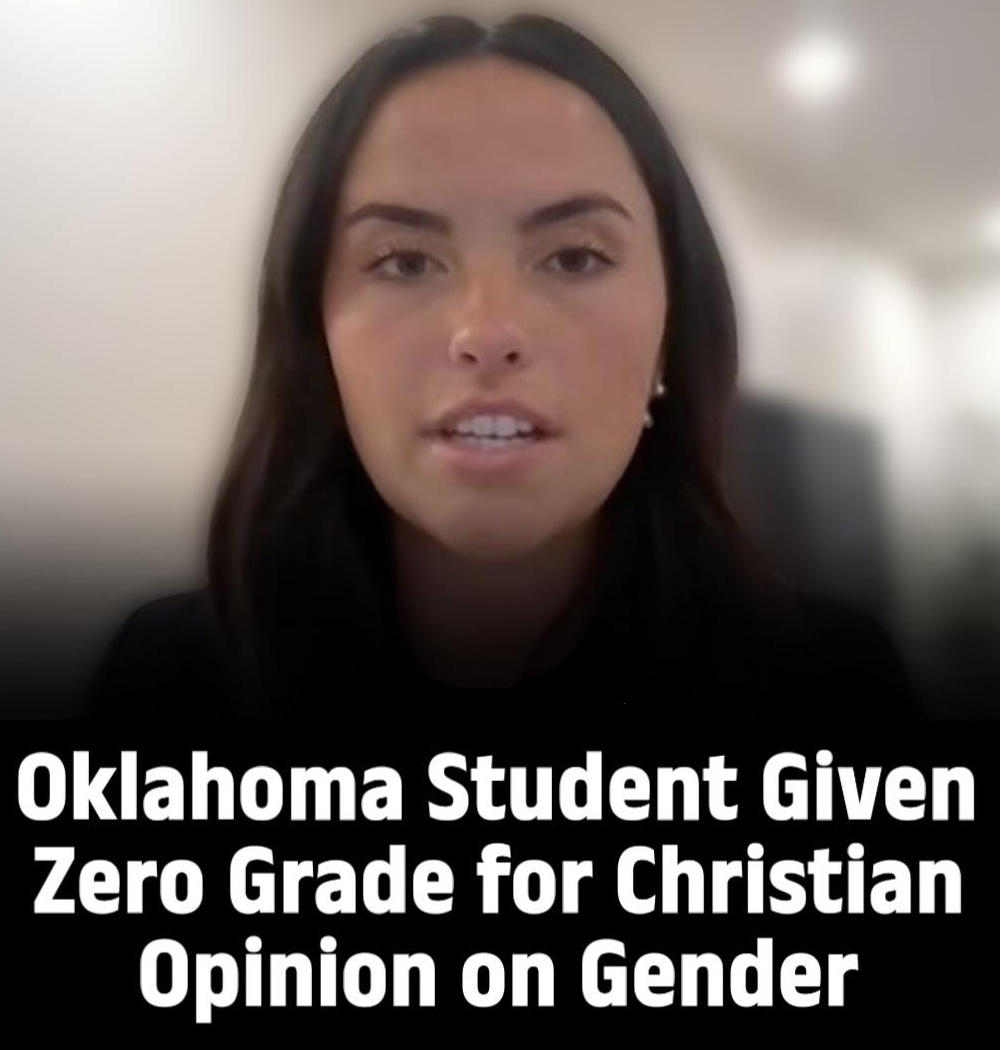
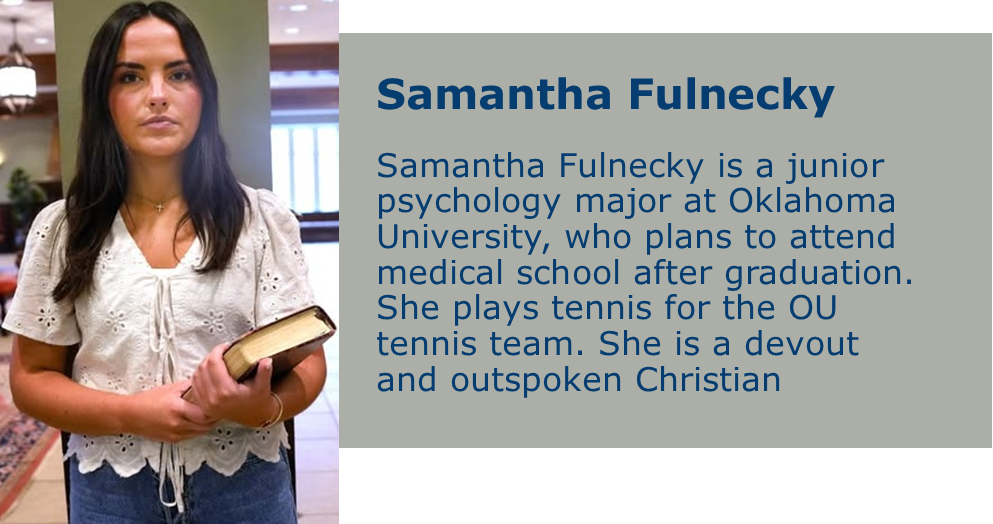
College Student
Learning How to Express Personal Opinions
There is a proper way to communicate ideas when writing
academic essays...
This issue
is not about silencing the truth, as Samantha has
claimed. It is about expressing
one's personal opinions and ideas in a professional
manner. It's about learning how to analyze a topic in a
mature and intelligent way. It's about making credible
statements that are supported by evidence and citations.
It's about the expectations of a developing professional
and the requirement to communicate arguments with
academic integrity, instead of spewing irresponsible
gibberish that never came close to meeting the
provisions of the assignment.
I've read the paper. I disagree with the student's claim
that her failing grade was based on discrimination of
her religious beliefs. Without any regard for the
subject matter, and based on the merits of the writing
itself, it is about the worst paper I have ever read.
The writing is immature and unprofessional. Her approach
was entirely lacking in curiosity, objectivity, and
academic integrity. The narrative was all opinion and
complaint, with no evidence or a single citation. She
has yet to learn how to express her ideas in a scholarly
manner. And, clearly, her professional development will
be very much impeded by her disingenuous and
irresponsible reaction to constructive criticism.
"Girl, you got an F on that college paper, not because
you're a Christian and your paper was graded by a trans
professor, but because you're a terrible writer . . .
Stop blaming and persecuting teachers because you refuse
to learn and lack critical thinking skills."
-Tell Williams (Teacher, therapist, inluencer)
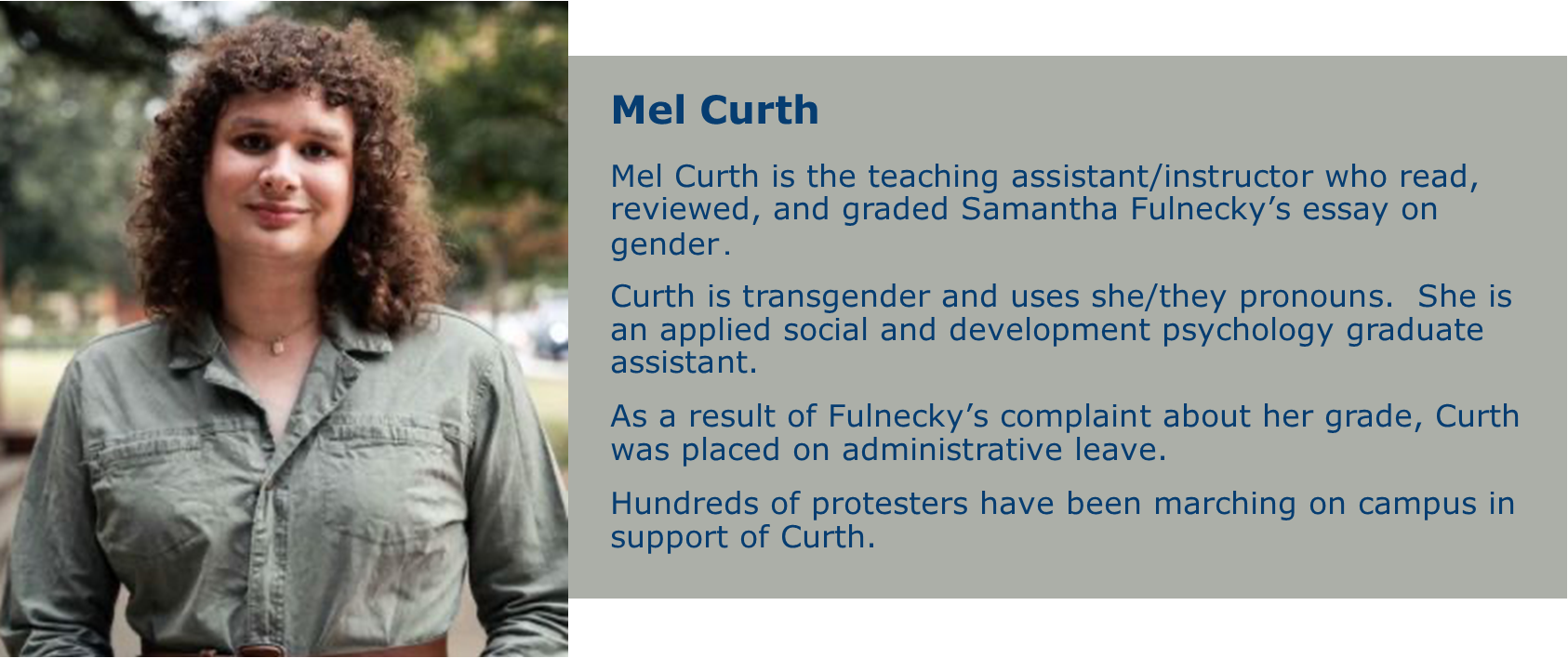
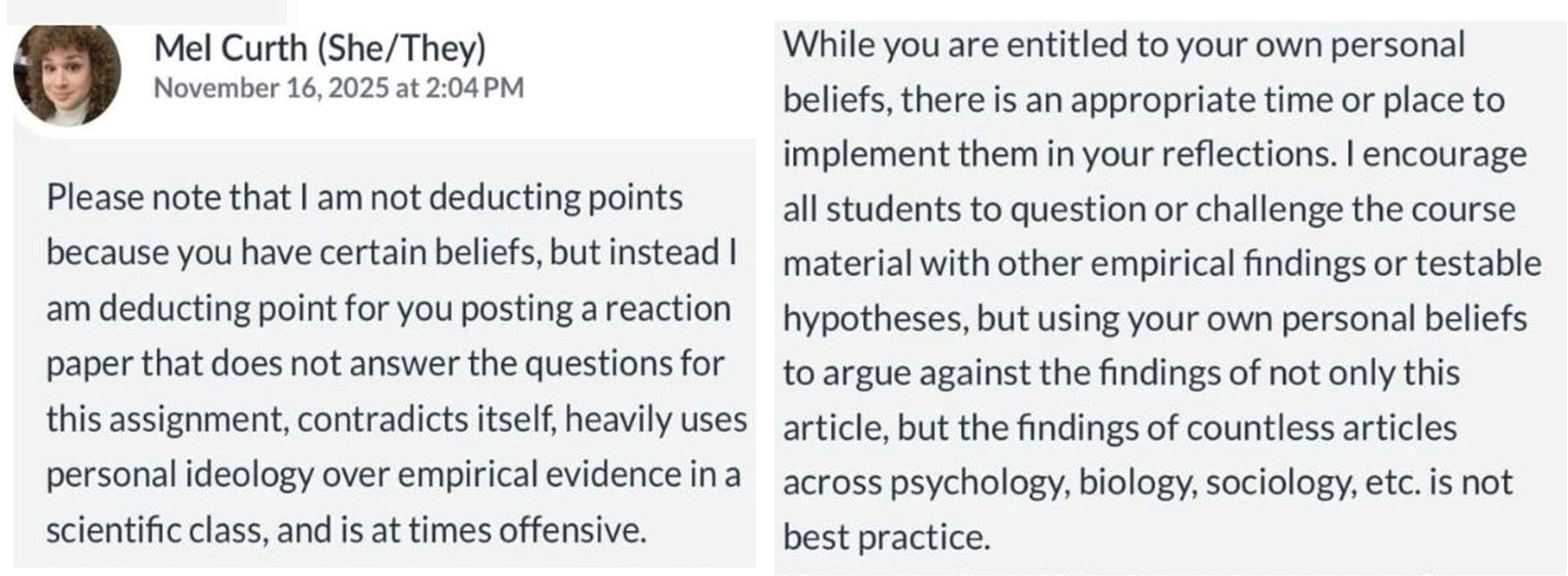
Read the Full Essay
University of Oklahoma Student Claims
Religious Discrimination Over Failed Essay
From Riley Gaines to Samantha Fulnecky, Conservatives
are Making Their Failures Everyone Else's Problem
Samantha Fulnecky on FoxNews
Student Cries Discrimination for Failing Grade on Essay
Calling Transness "Demonic"
Oklahoma
Republicans Are Calling Out Samantha Fulnecky
Mr Williams Reacts to Sam Fulnecky
Right-Wingers Are Up In Arms Over A College Student
Getting An F On Her Paper
University of Oklahoma Students March in Support of
Suspended instructor
Who is Kristi Fulnecky?
She
is so disingenuous and lacking in any kind of
self-awareness. She wants her professor to subjugate
their beliefs when grading her paper, but she is not
able to subjugate her beliefs in writing the paper.
I think this student needs to accept responsibility for
the paper she wrote and for the way she communicated her
ideas and expressed her opinions. I think she might want
to examine herself and realize that part of learning
(and part of becoming an educated professional) is to
have one's work reviewed.
Nobody is attacking her or pressuring her to compromise
her personally-held beliefs. I think it is a cop-out to
cry "discrimination" and "freedom of speech" and
"religious beliefs" in an academic setting where there
are rigorous expectations about the proper way to
present one's ideas.
Overall, I found the paper to be entirely unprofessional
in its writing style. It was a personal perspective,
heavy on opinion and highly subjective. I thought the
subject matter was handled in a way that was immature
and inconsistent with research-level narrative.
To properly review this paper, the grader would need to
be unbiased and objective about the subject matter and
focus on how the material was presented. Regardless of
the personal beliefs of the writer and grader, was the
subject discussed in a scholarly manner? Did it follow
the requirements of the rubric? Was it suitable
narrative for a developing professional?
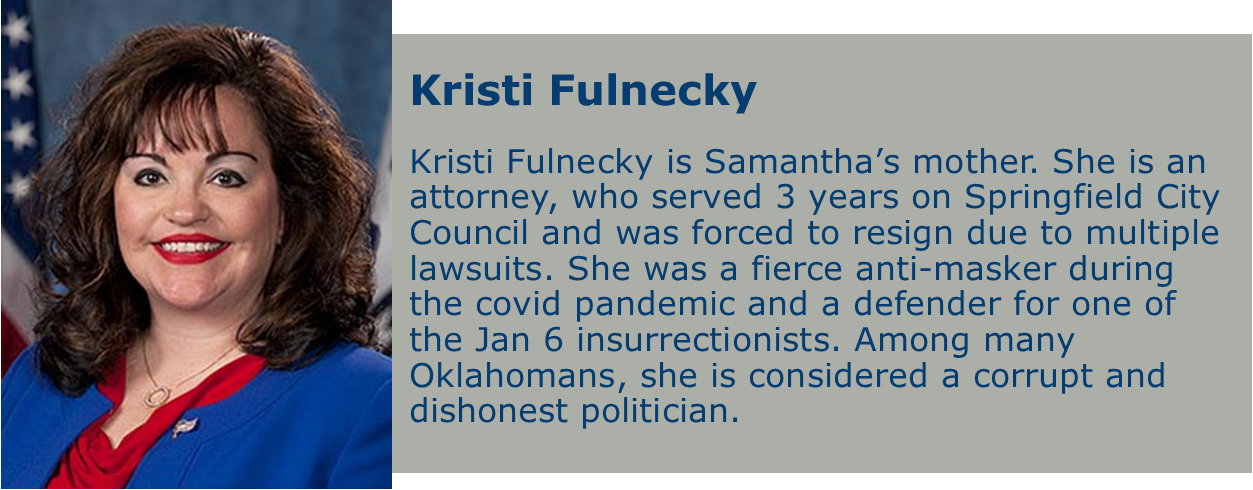
Read the Full Essay
University of Oklahoma Student Claims
Religious Discrimination Over Failed Essay
From Riley Gaines to Samantha Fulnecky, Conservatives
are Making Their Failures Everyone Else's Problem
Samantha Fulnecky on FoxNews
Student Cries Discrimination for Failing Grade on Essay
Calling Transness "Demonic"
Oklahoma
Republicans Are Calling Out Samantha Fulnecky
Mr Williams Reacts to Sam Fulnecky
Right-Wingers Are Up In Arms Over A College Student
Getting An F On Her Paper
University of Oklahoma Students March in Support of
Suspended instructor
Who is Kristi Fulnecky?
The
biblical/religious content was not the problem, as this
student claims. Her inability to address the topic in a
professional manner was at the heart of the problem. Her
paper lacked objectivity and academic integrity. Her
writing style was immature. She made no citations. She
has a lot to learn about the way she expresses her
opinions and ideas in a scholarly setting.
As far as I'm concerned, the subject matter she chose is
as valid as any other topic (and not exempt from
scrutiny). I have no problem with the religious content.
But she presented it as an assumed universal reality
along with critique for anybody who didn't adhere to it.
Her regard for alternate views was in the form of
complaint. She made no citations of her sources, nor did
she properly identify them.
What she could have done is to introduce the notion of
comparing and contrasting the biblical text to the
social and psychological concepts. And she could have
done so with a more detached and objective tone. I think
a discussion of the differences between religious texts
and current clinical theory and practice would have been
an interesting paper.
But, what could have been a serious scholarly inquiry
turned out to be a childish, preachy Sunday School
lesson.
I would have given her paper a failing grade.
[Source:
QC Commentary, December 2025]
College Cleverly Keeps its LGBTQ Center Open Despite
Laws Against DEI
What to Know about DEI Bans at Colleges
Surge of DEI Cuts Hits Colleges Across the US
Schools and Colleges Forced to Eliminate DEI Programs
Over 50 Universities Under Investigation as Part of
Trump's Anti-DEI Crackdown
Universities Need to Mount an Offensive for Diversity,
Equity, and Inclusion
Queer Class of
2025: Proud and Defiant
Engage in Activism... Speak Out... Advocate
for Change...
Big shout
out to the LGBTQ Class of 2025! Your commencement falls
at a very uneasy and scary time in our nation's history.
As you graduate and go out into an uncertain world, you
are encouraged to be proud and defiant, reject
regressions, and remain courageous in expressing your
identity! With so much turmoil in politics and
society, 2025 queer graduates have much to confront.
They must remember the importance of organizing,
speaking out, and marching to advocate for LGBTQ rights
and inclusive initiatives. Advocates and allies
acknowledge the challenges faced by LGBTQ individuals,
including the pushback against inclusivity and
diversity, and encourage you to hold onto your
convictions and remain true to yourselves.
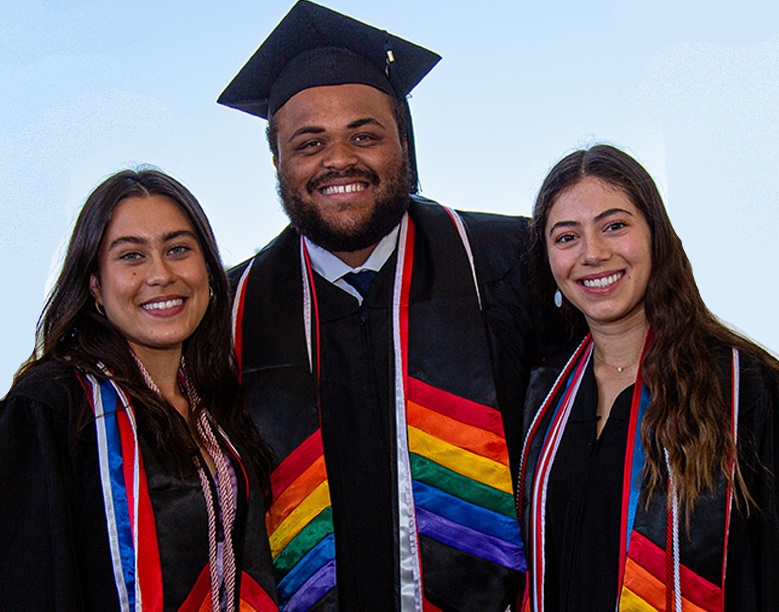
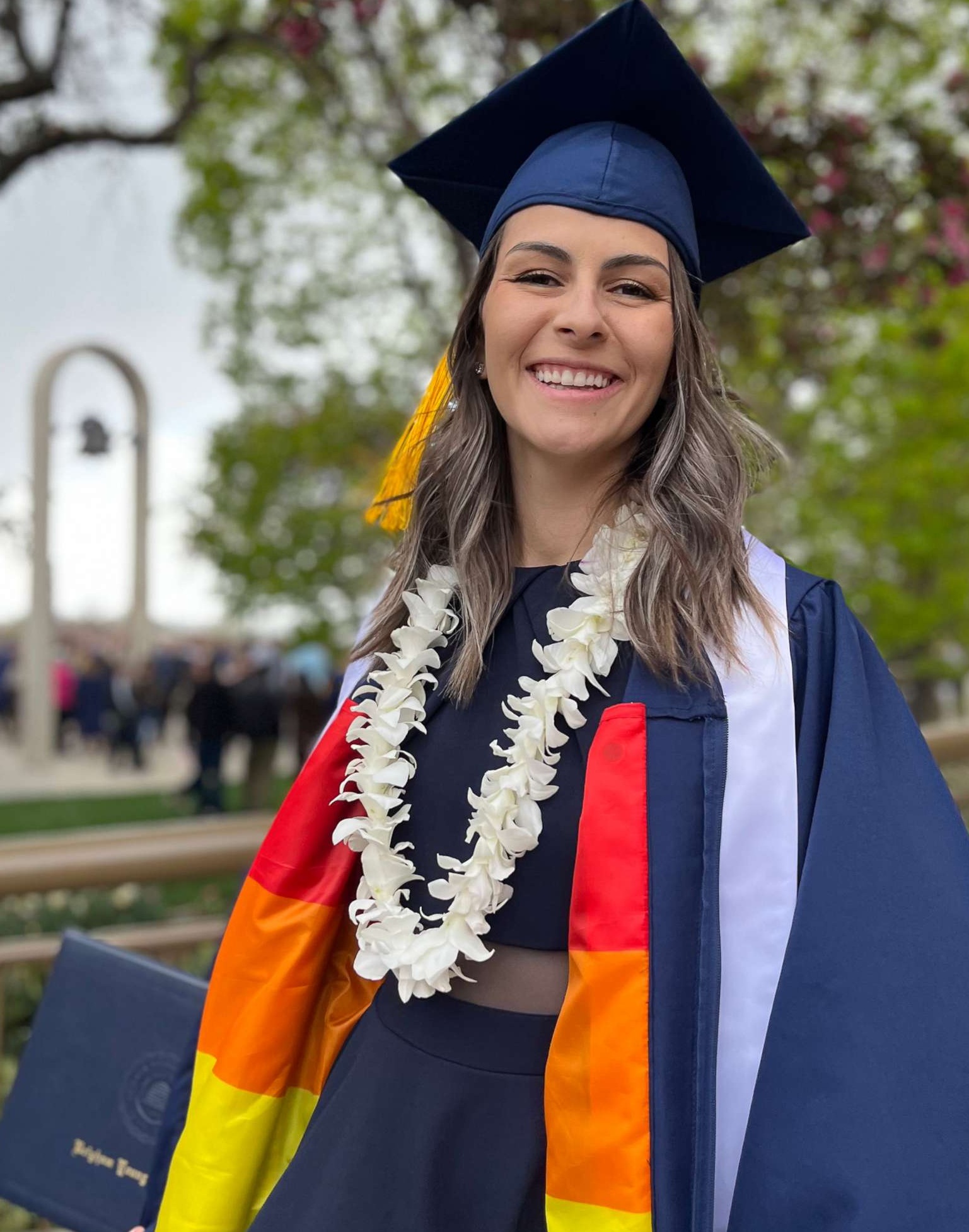
Class of 2025: Harvard Graduation Speech
In Gay We Trust: A Commencement Address For Queer
College Graduates
Harvard: Lavender Graduation Ceremony
Northwestern: Gov Pritzker Commencement Speech
Stony Brook: Lavender Graduation Ceremony
UC Berkeley: Lavender Graduation Speech
Graduation Message: Follow Your Heart and Remain
Stubborn
Scott Pelley: Commencement Address and Warning
--Be Proud and Defiant: Embrace your LGBTQ identity
without hesitation. Celebrate your accomplishments and
resist any attempts to silence or marginalize you.
--Reject
Regressions: Recognize that the LGBTQ community has
faced and continues to face challenges, including
efforts to roll back LGBTQ rights. Stand firm in your
beliefs and fight against such regressions.
--Remain
Courageous: Express your beliefs and identity openly,
even when facing opposition. Find strength in your
community and don't be afraid to speak out against
injustice.
--Organize, Speak Out, and March: Engage in activism,
advocate for change, and share your stories to raise
awareness and inspire others.
--Acknowledge the Challenges: Recognize that there are
those who may not understand or accept your identity,
but don't let their negativity discourage you. Find
strength in your resilience and continue to strive for a
more inclusive and equitable world.
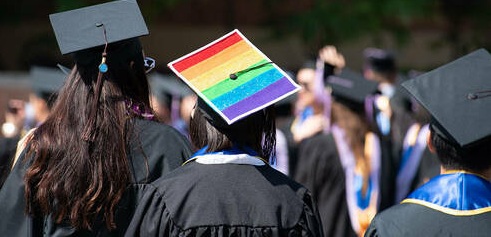
Class of 2025: Harvard Graduation Speech
In Gay We Trust: A Commencement Address For Queer
College Graduates
Harvard: Lavender Graduation Ceremony
Northwestern: Gov Pritzker Commencement Speech
Stony Brook: Lavender Graduation Ceremony
UC Berkeley: Lavender Graduation Speech
Graduation Message: Follow Your Heart and Remain
Stubborn
Scott Pelley: Commencement Address and Warning
College Keeps
its LGBTQ Center Open Despite Laws Against DEI
While other schools are shutting down their queer
student centers, one college has found new ways to pivot
in compliance with new restrictions...
Numerous colleges nationwide have shuttered their LGBTQ
centers under political pressure to end all diversity,
equity, and inclusivity (DEI) programs, but not at
Utah’s Salt Lake Community College (SLCC).
Peter Moosman was hired at SLCC in 2019 to help open up
its Gender and Sexuality Student Resource Center, an
office supportive of LGBTQ and female students. The
center is open to all students: It has a drop-in lounge,
offers connections to community groups and resources,
and hosts events, programs, and trainings for affinity
months like LGBTQ History Month or Women’s Heritage
Month.
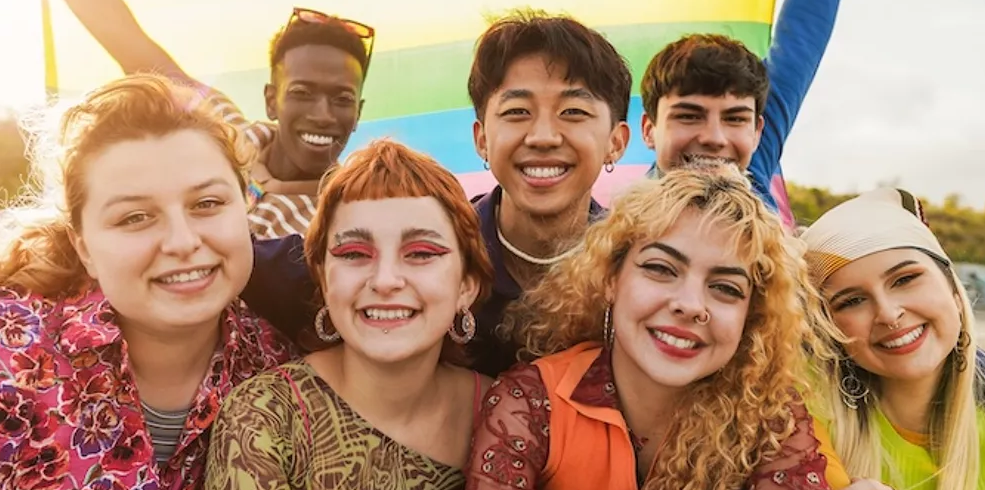
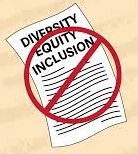
Class of 2025: Harvard Graduation Speech
In Gay We Trust: A Commencement Address For Queer
College Graduates
Harvard: Lavender Graduation Ceremony
Northwestern: Gov Pritzker Commencement Speech
Stony Brook: Lavender Graduation Ceremony
UC Berkeley: Lavender Graduation Speech
Graduation Message: Follow Your Heart and Remain
Stubborn
Scott Pelley: Commencement Address and Warning
Moosman, who currently serves as the center’s manager
and as SLCC’s assistant director of cultural
programming, oversaw the center exclusively until
October 2024, when the Utah state legislature passed HB
261, a law that prohibits state-funded colleges from
“discriminatory practices that favored certain identity
populations over others.” Then, last February, the US
Department of Education sent out a letter pledging to
end federal funding to any schools with DEI programs.
“By having programming or spaces or things that were
exclusive to a certain identity group, it was considered
discriminatory,” said Moosman. Nevertheless, SLCC has
shifted the center’s role, he explained, and its
marketing now makes it explicitly clear that the center
serves all students, just through a lens of gender and
sexuality.
“Our center never excluded anyone from any programming,
any services, any resources,” Moosman said. “We were not
checking IDs at the door. We had a lot of straight
students coming in and getting resources. We had a lot
of cisgender students coming in and getting resources.
So we were never engaged in the discriminatory practices
that were outlined in HB 261.”

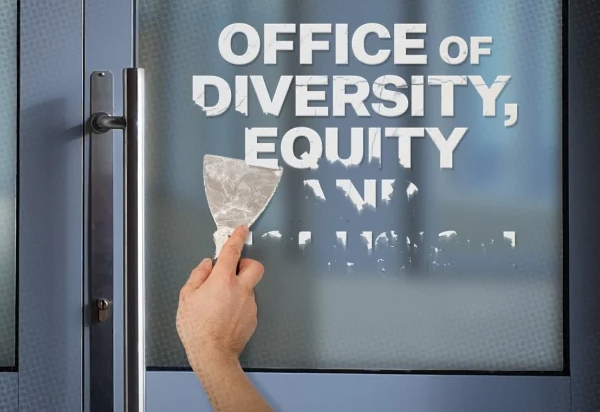
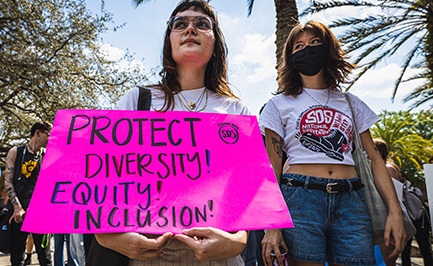
College Cleverly Keeps its LGBTQ Center Open Despite
Laws Against DEI
What to Know about DEI Bans at Colleges
Surge of DEI Cuts Hits Colleges Across the US
Schools and Colleges Forced to Eliminate DEI Programs
Over 50 Universities Under Investigation as Part of
Trump's Anti-DEI Crackdown
Universities Need to Mount an Offensive for Diversity,
Equity, and Inclusion
However,
the law prohibits any activities that teach that any
“individual’s personal identity characteristics are
inherently privileged, oppressed, or oppressive”
or that “socio-political structures are inherently a
series of power relationships.” These restrictions could
potentially make it difficult for any college
professional to discuss the role of political oppression
against LGBTQ and women, especially when observing any
affinity month like LGBTQ History Month.
Despite this, the Department of Education noted that
schools can hold programs centered around “educational,
cultural, or historical observances — such as Black
History Month — that celebrate or recognize
historical events and contributions, and promote
awareness, so long as they do not engage in racial
exclusion or discrimination.”
To comply with these directives, Moosman says the center
now highlights contributions from women or LGBTQ
historical figures rather than the specific oppressions
they faced. “We can talk about how these communities are
thriving. We can celebrate achievements. We just can’t
say something like, ‘Queer people are oppressed and need
to be recognized,'” Moosman said. “A lot of what these
bills and these laws and these mandates are forcing us
into are semantics games, and it’s challenging, it’s
frustrating.”

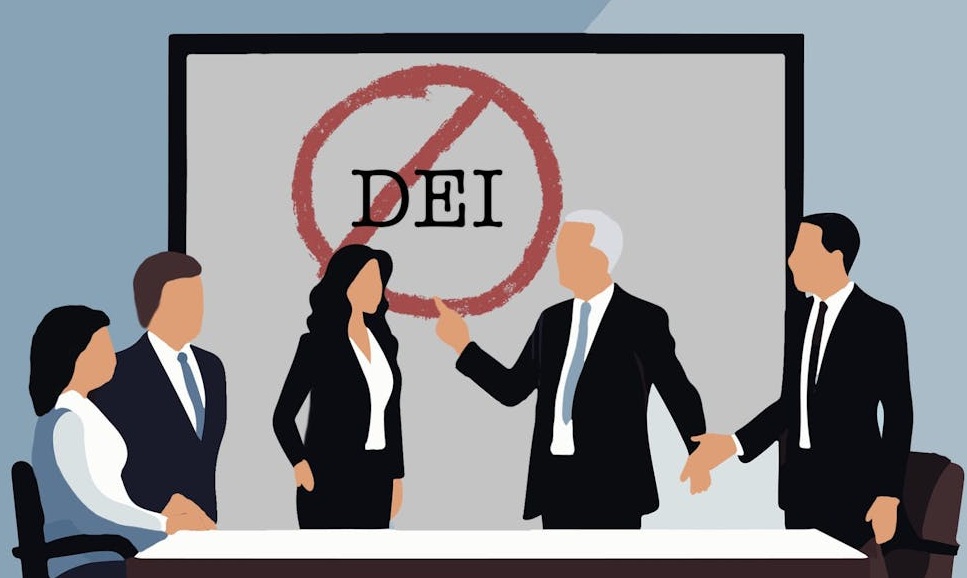
College Cleverly Keeps its LGBTQ Center Open Despite
Laws Against DEI
What to Know about DEI Bans at Colleges
Surge of DEI Cuts Hits Colleges Across the US
Schools and Colleges Forced to Eliminate DEI Programs
Over 50 Universities Under Investigation as Part of
Trump's Anti-DEI Crackdown
Universities Need to Mount an Offensive for Diversity,
Equity, and Inclusion
Despite the frustration, Moosman has also seen some
opportunities to engage people on gender and sexuality
issues in a different and possibly more accessible way.
The center used to provide LGBTQ awareness training that
trained different campus departments on things like
pronouns and the history and culture of the queer
community. Now, the center offers a “Gender and
Sexuality 101” presentation that looks at how gender and
sexuality have been expressed in nature, history,
culture, and biological differences. Moosman said
presenters make it three-fourths through the
presentation before they even mention any queer
terminology.
“I’ve been teaching these courses for a very long time,
and when we start the conversation like talking about
‘power’ and ‘privilege,’ which are kind of like these
political buzzwords, I see people in the audience kind
of like turn off, they shut off, or they get angry and
defensive, and it derails our conversation,” Moosman
said. “But when I have been able to change the language
and use more neutral terms — instead of saying
‘privilege,’ talk about ‘accessibility’ or ‘opportunity’
— they stay engaged longer.”
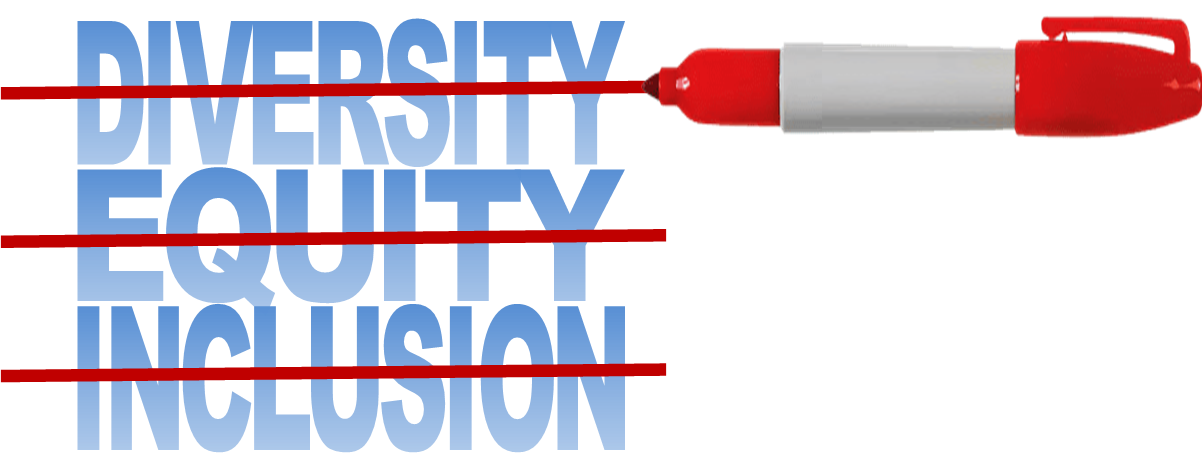
Class of 2025: Harvard Graduation Speech
In Gay We Trust: A Commencement Address For Queer
College Graduates
Harvard: Lavender Graduation Ceremony
Northwestern: Gov Pritzker Commencement Speech
Stony Brook: Lavender Graduation Ceremony
UC Berkeley: Lavender Graduation Speech
Graduation Message: Follow Your Heart and Remain
Stubborn
Scott Pelley: Commencement Address and Warning
Moosman thinks it’s important to share the ways his
school has been navigating these policies, both as a
form of educational solidarity and also as a potential
roadmap for institutions navigating similar political
challenges. “As I’m watching these LGBTQ centers shut
down, it makes me sad, of course, because these centers
are saving lives. These centers are serving students in
a way that they’re not getting at home or elsewhere… but
even more, I think we see nationally how quickly and how
easily people are bending and breaking under this
pressure, instead of trying to find new ways and pivot
to continue to serve students through creative
measures,” he said.
“How do we find creative ways to still engage, to still
serve our communities, still show up and exist,
especially when we are representing government entities…
and being restricted through laws?” Moosman asked
rhetorically. Citing philosopher Cornel West, Moosman
said that people need to develop the ability to be
“protean,” which Moosman defines as “the ability to be
flexible, to change without losing the core of our
purpose and our passions.”
“We can continue to do what we need to do, while
matching the energy of the situation, of the environment
right,” Moosman said. “So institutions that are funded
by federal dollars, institutions that are funded by
state dollars, that are being forced to bend with these
new laws and these new mandates, it’s going to require
us, through many creative ways, to be protean.”
[Source: Daniel Villarreal, LGBTQ Nation, April 2025]
College Cleverly Keeps its LGBTQ Center Open Despite
Laws Against DEI
What to Know about DEI Bans at Colleges
Surge of DEI Cuts Hits Colleges Across the US
Schools and Colleges Forced to Eliminate DEI Programs
Over 50 Universities Under Investigation as Part of
Trump's Anti-DEI Crackdown
Universities Need to Mount an Offensive for Diversity,
Equity, and Inclusion
Message to the
Class of 2024
LGBTQ College Graduates: Lavender Ceremony
In May
2024, I delivered the commencement address at the
University of Texas at Arlington’s Lavender Graduation,
a ceremony celebrating the LGBTQ and ally class of 2024.
Returning to my alma mater is always an honor but this
time felt different.
In the last year, regressive legislators, led by Texas
Governor Greg Abbott, have banned Diversity, Education
and Inclusive initiatives at public universities like UT
Arlington. Filed and approved last spring, Texas
Senate Bill 17 requires universities to close DEI
offices and bans additional initiatives. As a result,
LGBTQ-focused offices that provided healthcare,
community-focused programming, and counseling, as with
other essential programs, shuttered their official
university operations by the end of last year.
I am the
News Coordinator for GLAAD. I have previously worked for
NBC 5, the Dallas Morning News, and UTA’s award-winning
student newspaper, The Shorthorn. The former LGBTQ
program I looked to for resources and community is now
gone. Still, what remains and cannot be erased is the
spirit of an optimistic staff and courageous students
with a bright future ahead of them. As a gay Texas
native who now works for a major LGBTQ advocacy
organization, I couldn’t ignore the gravity of this
moment. I had to speak from my experience of what I
gained from being defiant, proud and queer. Stubborn,
even.


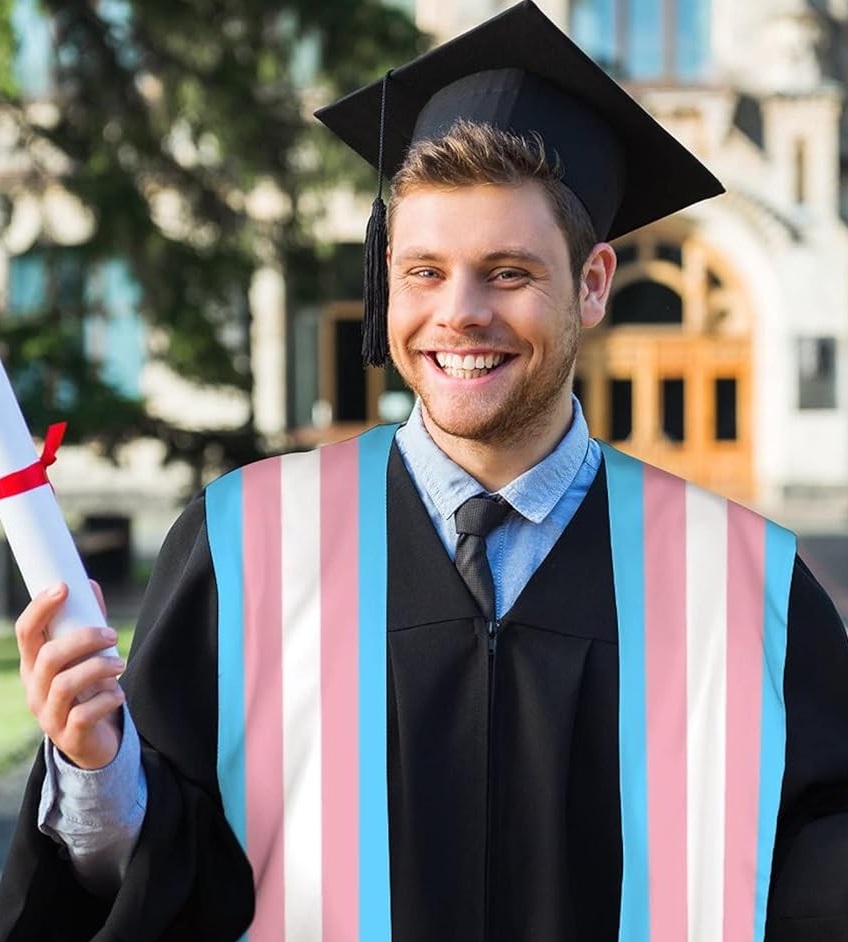

Follow Your Heart and Remain Stubborn: A Message to the
Class of 2024
Reasons Why Coming Out in College Is
Actually the Best
Most LGBTQ-Friendly Colleges and
Universities in the US
This College Track & Field Star is Breaking Records as
His Authentic Gay Self
Most Progressive, Diverse,
Inclusive Universities in the US
LGBTQ Community Resources for College
Students
My College Roommate Became a Close
Friend... Then I Started to Develop Feelings
When Leaving Campus Means Going Back Into the Closet
Things Queer Students Should Know Before Going to
College
LGBTQ Elders Share Their Thoughts About Today's Queer
Youth
Issues LGBTQ Students Might Face
University of Texas at Arlington’s Lavender
Commencement Address:
Class of 2024: This is a celebratory moment. I promise
it is. Few experiences feel like this, graduating.
Let your guard down and embrace this moment. I
know this moment may be difficult, too. As a recent
graduate, I get it.
UTA is my second home. I studied long nights at the
Central Library, met a professor whose wise words are
now sketched on my arm and my memory and yes, I even
thought I fell in love once while sitting with the
cutest guy in the CAPPA courtyard.
Mostly, I spent countless hours in The Shorthorn
newsroom below us. There, I was the paper’s Opinion
Editor and Life and Entertainment Editor where my
passion lay in ensuring the student body felt
represented.
I reported on the power of the Black women vote in 2020,
two alumni who are now successful artists in Dallas (and
also married,) the potential removal of an early voting
location on campus, the 2018 senate election and a
profile on an alumna who took to the art of drag to
express her true gender identity.
Still, at times, my passion and decisions were
questioned. As a member of a marginalized community,
could I continue to report on said community? Can a
queer reporter report on the university’s annual drag
show?
Those were actual discussions I had with my colleagues,
many of whom were also my friends. That was rough and
quite honestly, troubling. Still, I remained stubborn
and in my heart of hearts, knew I was creating a
professional and personal journey I could be proud of.
Despite pushback, I moved forward and now it’s my job to
ensure my community is not only represented but fairly
so.



Most LGBTQ-Friendly Colleges and
Universities in the US
Kamala Harris College Tour Inspires Young People to Fight for LGBTQ Rights
Texas and Florida Schools Excluded From
LGBTQ-Friendly College List
Ron DeSantis Wants to Scrub AP Classes of
LGBTQ Subjects
LGBTQ 2023: The Rising
Tide
Campus Pride: The Worst List 2022
Florida Bill Targets Diversity Studies at
State Universities
So now is the time to ask yourself: What do you have to
lose in being stubborn? As graduating students,
members of the LGBTQ community and allies, there is so
much operating against us. Our country, our state and
our public institutions are regressing at a rapid rate.
Reject those regressions and hold onto your convictions.
Institutions will try to silence your voices, your
identity. Do not let them. Organize, speak out, write on
and ensure that your voices are heard.
What we’ve learned from the past is that for far too
long, powers above us will try to silence you. It
happened in Stonewall in 1969, San Francisco in 1979 and
as recent as 2020 in the fight for racial equity. Yes,
it is even happening now across college campuses in the
United States. You, as students, as graduates, have
every right to freely express your beliefs and your
identity without fear of pushback. Especially today,
remember that.
Even tonight, after even the most recent of setbacks on
campus, here you are, at a Lavender Graduation–
celebrating not only your successes but your community
and your freedom to love and express yourself. That is
an act of defiance. As your influence grows, remain
defiant. If your mission in life is to build community
and create a better world or if it is just simply live,
do so with determination. We deserve that much. You
deserve that much.
Graduates, you have come so far, you have seen so much,
but there is still so much to do. So tonight, in the
face of adversity, remain courageous. Embrace what it
means to be stubborn. I have seen it in you. Especially
these last few months. I see it and I’m hopeful. I
believe in you all. And so, Class of 2024, my message to
you is this: Follow your heart and remain stubborn.
[Source:
Jacob Reyes, News Coordinator for GLAAD, May 2024]
Follow Your Heart and Remain Stubborn: A Message to the
Class of 2024
Reasons Why Coming Out in College Is
Actually the Best
Most LGBTQ-Friendly Colleges and
Universities in the US
This College Track & Field Star is Breaking Records as
His Authentic Gay Self
Most Progressive, Diverse,
Inclusive Universities in the US
LGBTQ Community Resources for College
Students
My College Roommate Became a Close
Friend... Then I Started to Develop Feelings
When Leaving Campus Means Going Back Into the Closet
Things Queer Students Should Know Before Going to
College
LGBTQ Elders Share Their Thoughts About Today's Queer
Youth
Issues LGBTQ Students Might Face
Most LGBTQ
Friendly Colleges
Welcoming
Campuses
Campus
Pride’s 2021 Best of the Best LGBTQ-Friendly Colleges
and Universities list includes schools from
Massachusetts to Oregon, from Wisconsin to Texas. And
this year the organization is also highlighting
community colleges and religious schools leading the way
in inclusion.
“More than ever, colleges today want to be viewed as
LGBTQ-friendly and a welcoming place for all students.
LGBTQ students and their safety impacts the recruitment
efforts of the entire campus,” Campus Pride Executive
Director Shane Windmeyer said in a press release.
“Upper-level administrators are now understanding how
LGBTQ-friendliness is key to academic success of
students and the future institutional success of the
campus.”
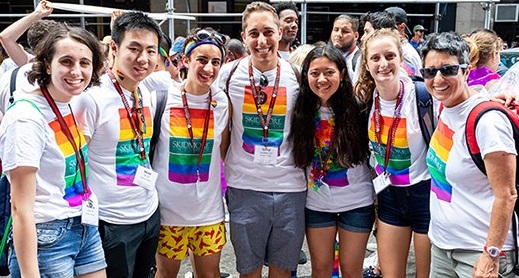
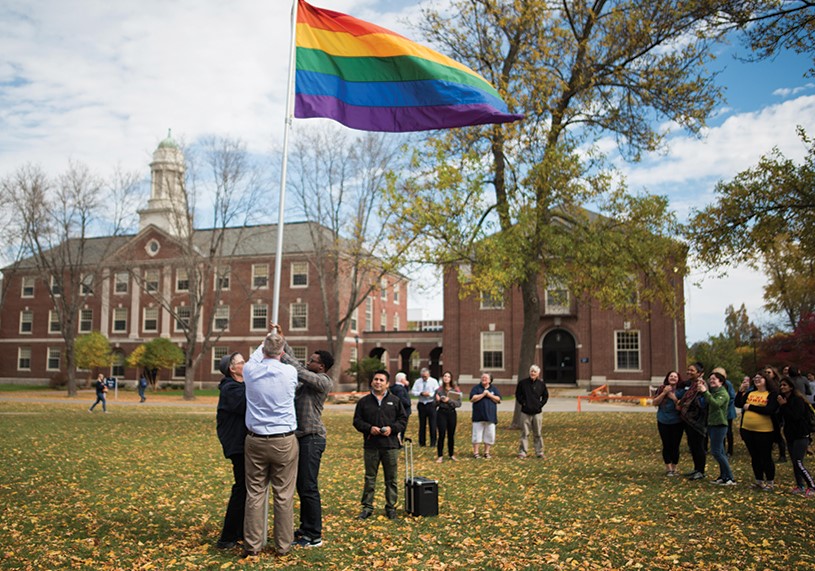
Most LGBTQ-Friendly Colleges and
Universities in the US
Kamala Harris College Tour Inspires Young People to Fight for LGBTQ Rights
Texas and Florida Schools Excluded From
LGBTQ-Friendly College List
Ron DeSantis Wants to Scrub AP Classes of
LGBTQ Subjects
LGBTQ 2023: The Rising
Tide
Campus Pride: The Worst List 2022
Florida Bill Targets Diversity Studies at
State Universities
“Seeing the representation of schools from every corner
of the country and highlighting the efforts of community
colleges and even religious institutions really
underlines the successes Campus Pride has had over our
20 years,” added Tom Elliott, Campus Pride board chair.
“The work we’ve done with student leaders, and the
resources Campus Pride continues to provide them, is
making the higher education experience safer and more
welcoming to LGBTQ students nationwide.”
The main Best of the Best list comprises 30 four-year
institutions that have achieved five out of five stars
on the Campus Pride Index, a benchmarking tool that
tracks LGBTQ-friendly policies, programs, and practices.
|
Mid-Atlantic
University of Maryland
Montclair State University, NJ
Hofstra University, New York
Ithaca College, New York
Lehigh University, Pennsylvania
Pennsylvania State University
University of Pennsylvania
New England
Tufts
University, Massachusetts
University of Massachusetts
University of Vermont
West
San
Diego State University
University of Colorado at Boulder
University of Northern Colorado
Southern Oregon University
University of Oregon
Washington State University
Community Colleges
Red
Rocks Community College, Colorado
Dutchess Community College, New York
SUNY Westchester Comm College, NY
Pellissippi State Community College, TN
San Antonio College, Texas
Salt Lake Community College, Utah
Everett Community College, Washington
North Seattle College, Washington
 |
Midwest
Kansas
State University
Southern Illinois University
Indiana University
Kent State University, Ohio
Kenyon College, Ohio
University of Wisconsin Eau Claire
University of Wisconsin Green Bay
University of Wisconsin Milwaukee
Southeast
Northern Kentucky University
University of Kentucky
Elon University, North Carolina
University of Virginia
Southwest
Texas
Tech University
University of Texas at Dallas
Religious Colleges
Loyola
Marymount University, California
Emory University, Georgia
Augsburg University, Minnesota
Guilford College, North Carolina
Willamette University, Oregon
Lebanon Valley College, Pennsylvania
Southern Methodist University, Texas
Virginia Wesleyan University
Gonzaga University, Washington
Georgetown University, Washington, DC
 |
[Source: Campus Pride, August 2021]
Campus Pride
Follow Your Heart and Remain Stubborn: A Message to the
Class of 2024
Reasons Why Coming Out in College Is
Actually the Best
This College Track & Field Star is Breaking Records as
His Authentic Gay Self
Most LGBTQ-Friendly Colleges and
Universities in the US
LGBTQ Students Harassed at
Christian Colleges
Most Progressive, Diverse,
Inclusive Universities in the US
LGBTQ Community Resources for College
Students
When Leaving Campus Means Going Back Into the Closet
Things Queer Students Should Know Before Going to
College
LGBTQ Elders Share Their Thoughts About Today's Queer
Youth
LGBTQ Students More Likely to Leave Home for College in
More Welcoming States
Issues LGBTQ Students Might Face
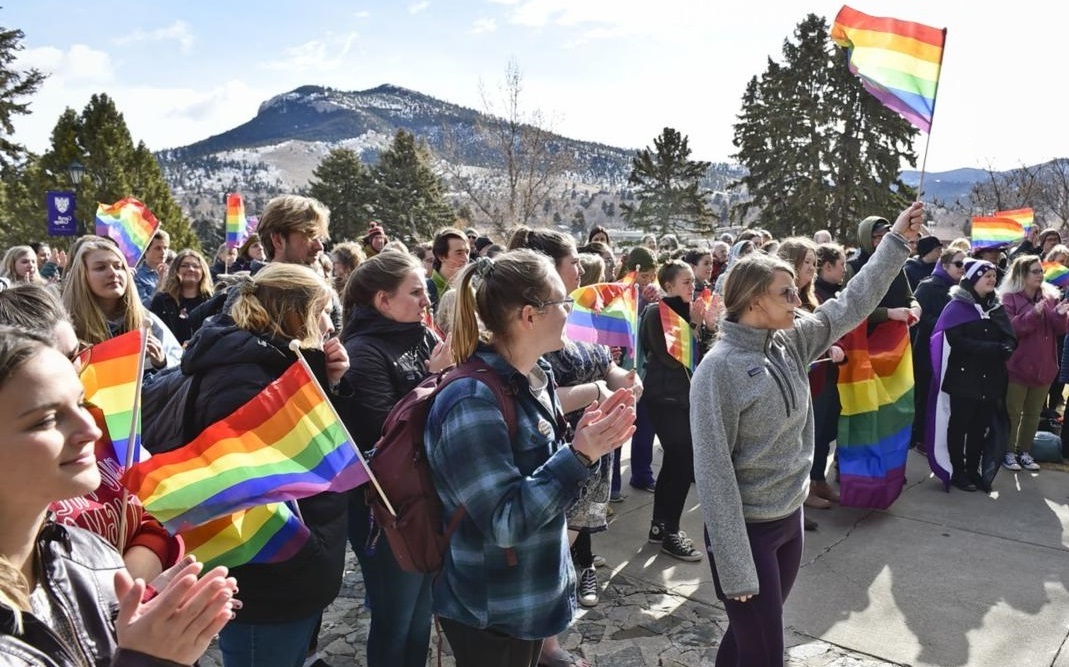
Update: Campus
Pride Dumps Florida and Texas Universities from Best of
Best List
Higher education must instill values of diversity and
inclusion in order to create a quality, productive
workforce
Campus Pride won’t include Florida or
Texas schools in its list of best colleges and
universities for LGBTQ students to attend. Instead, the
organization issued a “red alert” warning the schools
will inevitably fall in rankings and that state leaders
have put institutions’ academic reputations at risk.
“Campus Pride stands by every campus being negatively
impacted by anti-LGBTQ laws in the states of Florida and
Texas,” said Campus Pride founder, CEO, and executive
director Shane Mendez Windmeyer. “Higher education must
instill values of diversity and inclusion in order to
create a quality, productive workforce. The classroom
must be safe, and create a welcoming academic learning
environment.”
The national organization, in existence since 2001, each
year releases its Best of the Best LGBTQ-Friendly
Colleges and Universities list.
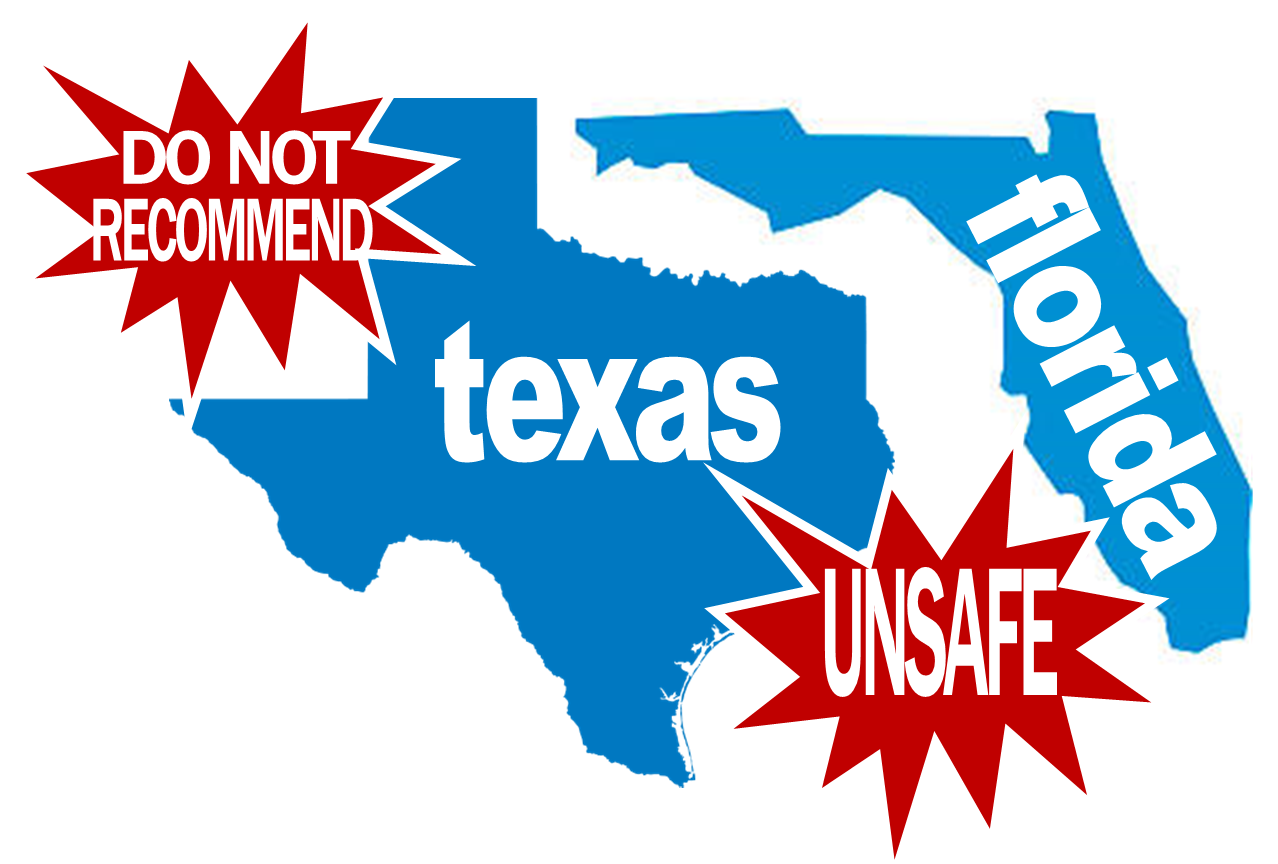
Campus Pride Dumps Florida and Texas Universities from
Best of Best List
Texas and Florida Schools Excluded From
LGBTQ-Friendly College List Over New State Laws
Florida Bill Targets Diversity Studies at
State Universities
These Are the Nation's Most LGBTQ-Friendly Colleges,
Universities
But
Mendez Windmeyer said new laws instituted in both states
compromise that environment.
Florida Gov. Ron DeSantis in May 2023 signed a law
barring the state’s public colleges and universities
from spending any funds on diversity, equity and
inclusion initiatives programs or classes. Campus Pride
specifically cited that law in a release announcing both
the University of Central Florida and the University of
North Florida, despite appearing in the rankings in the
past, would be dumped this year. That’s despite UNF
topping the list of universities in the Southeast United
States in 2022, and UCF receiving the highest listing
for any Florida school in 2021.
Meanwhile, Texas Gov. Greg Abbott also
signed a similar law, which has forced the closure of
LGBTQ resource centers for students on Texas campuses.
This means Texas Tech University and the University of
Texas at Dallas, which both have earned Campus Pride
recognition on its Best of the Best lists in years past,
won’t receive the accolades this year. The two campuses
were the only ones in the Southwest United States to
make the list last year.
Moreover, Campus Pride cautions students considering
higher education in either state as anti-queer crusades
continue in Austin and Tallahassee.
“These laws are being weaponized against LGBTQ people,
needlessly endangering the safety and well-being of
students on campuses across the states of Florida and
Texas,” Mendez Windmeyer said. “Already we are hearing
from prospective students and families that they are
choosing colleges elsewhere.”
“It is truly sad, when political leaders use people as
pawns,” said Manny Velásquez-Paredes, director of the
LGBTQ Center at the University of North Florida, in a
press release about the exclusion. “It is clear to every
rational human being that diversity, equity, and
inclusion are meant to create awareness and embrace,
celebrate, and include our differences. However, we have
found ourselves in the middle of a political culture war
that is meant to divide us. Their attacks on the LGBTQ
community have been deeply felt this past legislative
session, with over 500 anti-LGBTQ+ bills introduced in
the US.”
[Source: Jacon Ogles, Advocate, September
2023]
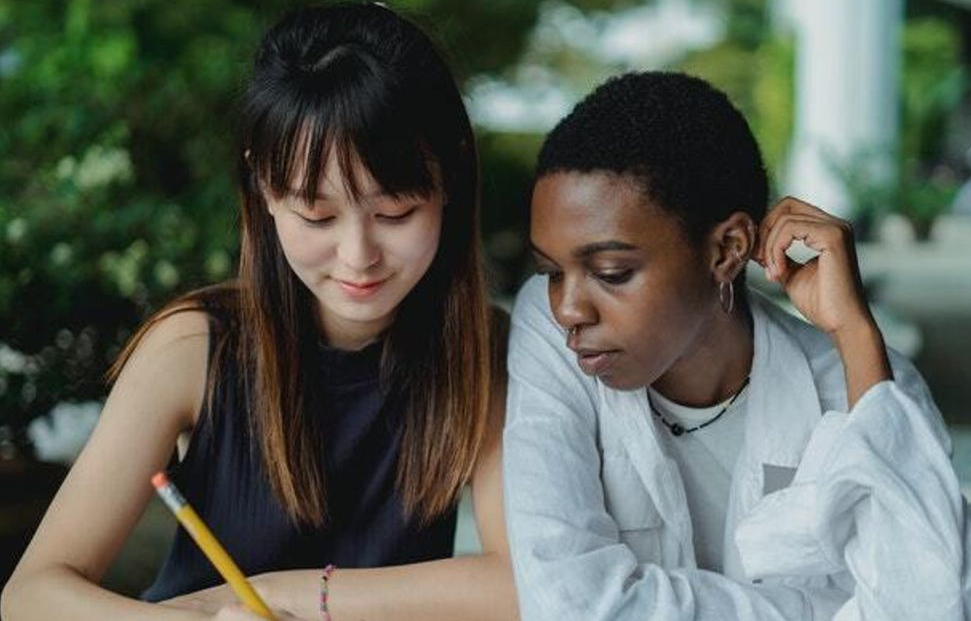
Follow Your Heart and Remain Stubborn: A Message to the
Class of 2024
Kamala Harris College Tour Inspiring Critical Generation
of Young People in Fight for LGBTQ Rights
This College Track & Field Star is Breaking Records as
His Authentic Gay Self
Texas and Florida Schools Excluded From
LGBTQ-Friendly College List Over New State Laws
Ron DeSantis Wants to Scrub AP Classes of
LGBTQ Subjects
LGBTQ 2023: The Rising
Tide
Campus Pride: The Worst List 2022
My College Roommate Became a Close
Friend... Then I Started to Develop Feelings
Florida Bill Targets Diversity Studies at
State Universities
Worst List: Colleges That are Unsafe for LGBTQ Students
Intelligent: LGBTQ College Student Guide
Taylor Swift: NYU 2022 Commencement Speaker
University Marching Band Impresses with Halftime Show in
Support of LGBTQ Rights
LGBTQ Students File Class Action Lawsuit Against US Dept
of Education
Reasons Why Coming Out in College Is
Actually the Best
Issues LGBTQ Students Might Face
Vice President
Harris Touring US Colleges and Universities
The Fight for Our Freedoms College Tour...
US vice president Kamala Harris embarks on a
university tour to encourage young people to fight for
their “fundamental rights and freedoms.”
It was announced in September 2023 that Harris will be
touring universities in an effort to mobilize students
on key issues such as LGBTQ rights, as well as
encouraging students to register to vote. The Fight for
Our Freedoms College Tour takes President Joe Biden’s VP
through key swing states including Georgia, North
Carolina and Nevada – states which could prove critical
for the Democrats in the 2024
presidential election.
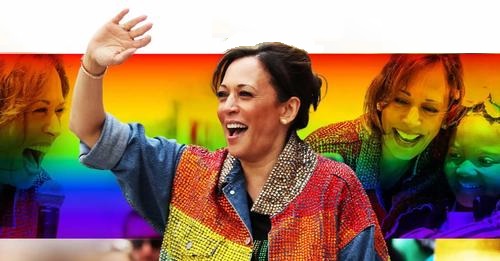
Kamala Harris: Fight for Our Freedoms College Tour
Reasons Why Coming Out in College Is
Actually the Best
Worst List: Colleges That are Unsafe for LGBTQ Students
Intelligent: LGBTQ College Student Guide
Taylor Swift: NYU 2022 Commencement Speaker
University Marching Band Impresses with Halftime Show in
Support of LGBTQ Rights
LGBTQ Students File Class Action Lawsuit Against US Dept
of Education
Issues LGBTQ Students Might Face
According to the White House, the month-long tour focuses on “key issues that disproportionately impact
young people across the country, from reproductive
freedom and gun safety to climate action, voting rights,
LGBTQ equality, and book bans“. Harris’ tour also
focuses on historically Black universities, as well as
community colleges and apprenticeship programs.
“This
generation is critical to the urgent issues that are at
stake right now for our future,” the vice president said
in a statement. “It is young leaders throughout
America who know what the solutions look like and are
organizing in their communities to make them a reality.
My message to students is clear: we are counting on you,
we need you, you are everything.”
Harris is the first female vice president in US history,
as well as the first African-American and first
Asian-American vice president – and the first sitting VP
to march in a Pride parade. She has been consistently
outspoken on LGBTQ rights, slamming hateful legislation
like Florida’s reviled Don’t Say Gay law as
“outrageous”.
Condemning a rise in anti-LGBTQ bills being introduced
in America in 2023, Harris said: “There are over 600
bills being proposed, anti-LGBTQ bills … people are
afraid to be themselves, these are fundamental issues
that point to the need for us all to be vigilant, to
stand together.”

Campus Pride
Follow Your Heart and Remain Stubborn: A Message to the
Class of 2024
Most LGBTQ-Friendly Colleges and
Universities in the US
LGBTQ Students Harassed at
Christian Colleges
Most Progressive, Diverse,
Inclusive Universities in the US
LGBTQ Community Resources for College
Students
When Leaving Campus Means Going Back Into the Closet
Things Queer Students Should Know Before Going to
College
LGBTQ Elders Share Their Thoughts About Today's Queer
Youth
My College Roommate Became a Close
Friend... Then I Started to Develop Feelings
LGBTQ Students More Likely to Leave Home for College in
More Welcoming States
Issues LGBTQ Students Might Face
Gay Men Have the
Highest Rates of Degree Attainment in US
Academic Success for Gay Boys
While it's
been widely documented that women have been outnumbering
men in attaining bachelor's degrees at currently a 60:40
ratio, a new study by a Notre Dame researcher considers
how those numbers change according to sexual identity.
Ultimately, the study, "Intersecting the Academic Gender
Gap: The Education of Lesbian, Gay and Bisexual
America," found that gay men earn significantly more
degrees than straight men, while the overall number of
lesbian women earning degrees is declining.
"Across analyses, I reveal two demographic facts," said
Dr. Joel Mittleman, an assistant professor of sociology
at Notre Dame and author of the study. "First, women's
rising academic advantages are largely confined to
straight women. Although lesbian women historically
outpaced straight women, in contemporary cohorts,
lesbian and bisexual women face significant academic
disadvantages. Second, boys' well-documented
underperformance obscures one group with remarkably high
levels of school success: gay boys."

Gay Men More Likely to Graduate College
Gay Men Earn College Degrees at Highest Rate in US
According to Mittleman, 52% of gay men in the US have a
bachelor's degree, a total of 16 percentage points
higher than the national average. Putting that number
into a global perspective, Mittleman writes, "If
America's gay men were considered on their own, they
would have, by far, the highest college completion rate
in the world: easily surpassing the current leader,
Luxembourg, at 46.6 percent."
Additionally, the study found that 6% of gay men in the
US have an advanced degree (JD, MD, PhD), which is 50%
higher than the number of straight men with degrees and,
notably, is a trend that remained true across the four
largest racial/ethnic groups (white, Black, Hispanic and
Asian).
Just why gay men are earning more degrees than straight
men, is a question Mittleman explores, hypothesizing
that gay men may respond to societal homophobia by
"overcompensating" academically. "Whereas the rules of
masculinity may feel obscure or unattainable, the rules
of school can feel discrete and manageable," he writes.
"Whereas the approval of a parent may be uncertain, the
praise of a teacher can be regularly earned with the
right amount of effort."
Meanwhile, Mittleman found that lesbian women were twice
as likely to report dropping out of high school than
straight women — a trend, he hypothesizes, that could be
indicative of teacher discrimination.
[Source:
Jessica Ruf, Diverse: Issues in Higher Education, Nov
2021]
Campus Pride
College Scholarships for LGBTQ Students
This College Track & Field Star is Breaking Records as
His Authentic Gay Self
LGBTQ Friendly College List 2018
Reasons Why Coming Out in College Is
Actually the Best
The Complicated Past and Promising Future of Queer
Studies
LGBTQ Community Resources for College
Students
Best Colleges for LGBTQ Students
Court Rules Yeshiva University Must Recognize LGBTQ
Student Group
Intelligent: LGBTQ College Student Guide
LGBTQ Students More Likely to Leave Home for College in
More Welcoming States
Mental Health for LGBTQ Students
Issues LGBTQ Students Might Face
Worst List: Colleges That are Unsafe for LGBTQ Students
LGBTQ Students Harassed at
Christian Colleges
LGBTQ Podcasts for College Students
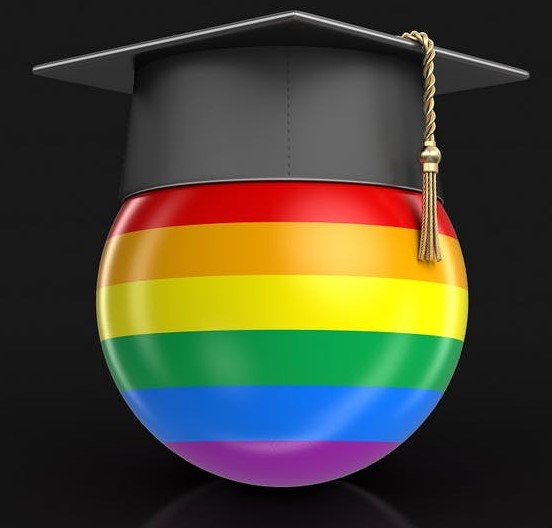
Campus Issues
for LGBTQ Students
Inclusive
Educational Environment?
Is Your
College LGBTQ Friendly? Do LGBTQ students feel safe
and accepted on their college campus? Choosing the right
college may be critical in determining whether or not
you feel respected and accepted. Does your campus have
an inclusive environment? Or does it isolate and
marginalize its LGBTQ population? LGBTQ college students
are encouraged to consider their college's policies,
faculty and staff, commitment to LGBTQ support, student
life, academic life, campus housing, campus safety,
counseling and health services, and recruitment efforts.
--Does your campus include sexual orientation and gender
identity/expression in the written non-discrimination
policy statement and in written statements about
diversity and multiculturalism?
--Does your campus provide domestic partner benefits for
LGBTQ employees with same-sex partners?
--Does your campus have a Safe Zone program or Safe Space
program (an ongoing network of visible people on campus
who identify openly as allies for LGBTQ people and
concerns)?
--Does your campus have a professional staff person who is
employed to increase campus awareness of LGBTQ
concerns/issues as part of his/her job description?
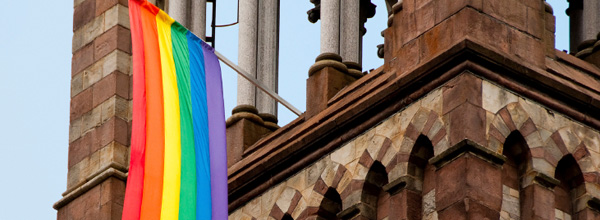
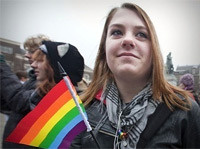
Most LGBTQ-Friendly Colleges and
Universities in the US
Study Abroad: Most LGBTQ Friendly Countries
Chronicle of Higher Education: What LGBTQ Students Want
Their Professors to Know
Physical and Emotional Health Concerns of LGBTQ College
Students
The Atlantic: Is College More Dangerous for LGBTQ
Students?
College Guide: Resources for LGBTQ Students
Students Succeed When
Diversity is Valued
My College Roommate Became a Close
Friend... Then I Started to Develop Feelings
Info: LGBTQ Affirming Colleges, Companies, Cities
Religious Universities Living Up to LGBTQ
Values of Inclusion
Resource Guide for LGBTQ
College Students
Chronicle of Higher
Education: Interviewing While LGBTQ
The Hidden Life of a Christian College
Professor
--Does your
campus have an LGBTQ concerns office or an LGBTQ student
resource center (an institutionally funded space
specifically for LGBTQ education and support services)?
If not, does your campus have another office or resource
center that deals actively with LGBTQ issues and
concerns (Women’s Center, Multicultural Center)?
--Does your senior administration actively demonstrate
inclusive use of the words “lesbian, gay, bisexual,
transgender, and queer” when discussing community,
multicultural and, or diversity issues on campus?
--Does your
campus sponsor regular, on-going campus-wide activities
and events to increase awareness of LGBTQ
issues/concerns on campus?
--Does your campus have regular, on-going social events
specifically for LGBTQ students?
--Does your campus have a college/university-recognized
LGBTQ campus student organization for all LGBTQ students
and allies?
--Does your campus have any student organizations that
primarily serve the social or recreational needs of
LGBTQ students (Gay social fraternity, Lesbian
Volleyball Recreational Club, Gay Coed Lacrosse Club)?
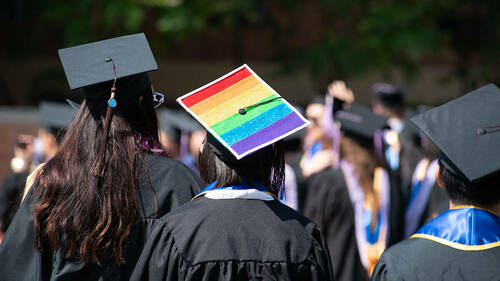
Yale’s GALA Class Reunion Music Video
Most Progressive, Diverse,
Inclusive Universities in the US
LGBTQ Community Resources for College
Students
College Toolkit: Choosing an LGBTQ-Affirming College
Things Queer Students Should Know Before Going to
College
Info: LGBTQ Affirming Colleges, Companies, Cities
Video: Issues LGBTQ Students Might Face
Campus Pride: 15 LGBTQ-Friendly College Campuses
Research Paper: LGBTQ Issues in Higher Education
--Does your
campus have any student organizations that primarily
serve the needs of under-represented or multicultural
LGBTQ populations (LGBTQ Latinos/Latinas, International
LGBTQ students, LGBTQ Students with Disabilities)?
--Does your campus have any student organizations that
primarily serve the religious/spiritual needs of LGBTQ
students (Unity Fellowship for Students, Gays for
Christ, LGBTQ Muslims)?
--Does your campus have out LGBTQ faculty members?
--Does your campus have an LGBTQ studies major? If No,
does your campus have LGBTQ-specific courses offered
through various academic programs?
--Does your campus integrate LGBTQ issues into existing
courses when appropriate?
--Does your campus include LGBTQ issues in new
faculty/staff orientation programs and on-going training
opportunities?
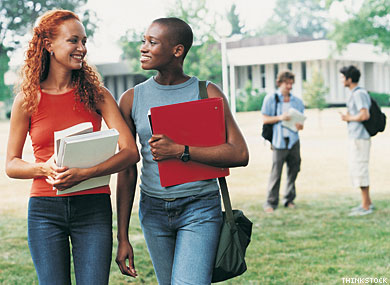
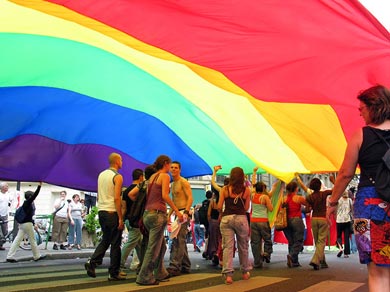
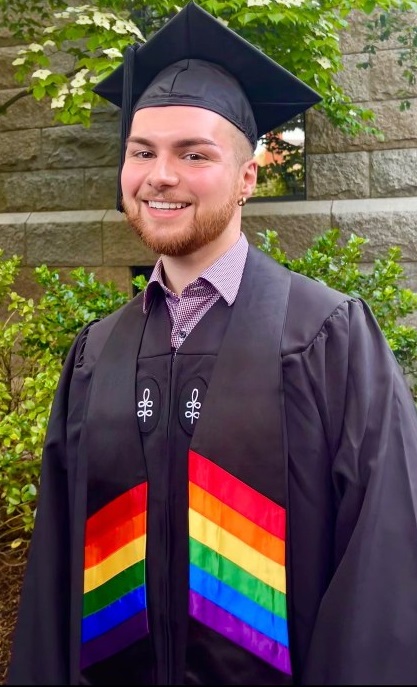
Campus Pride:
Making Campuses Safer and More Welcoming for LGBTQ
Students
Advice on Being Gay in College
List of LGBTQ and LGBTQ Friendly Fraternities and
Sororities
This College Track & Field Star is Breaking Records as
His Authentic Gay Self
Reasons Why Coming Out in College Is
Actually the Best
Intelligent: LGBTQ College Student Guide
Trans College Student Resource Guide
Info: College Safe Zone Programs
Track Team Mates: Coming Out and Dating
The Complicated Past and Promising Future of Queer
Studies
Top LGBT Friendly College Campuses
Support for
LGBTQ Business Students
Campus Pride
Index
--Does your
campus have an extensive collection of LGBTQ-related
holdings in the campus library?
--Does your campus provide LGBTQ-themed housing options or
LGBTQ specific living-learning communities in campus
housing?
--Does your campus allow for students with same-sex
spouses/partners to reside together in campus housing?
--Does your campus provide housing options that are
sensitive to the needs of transgender students?
--Does your campus provide training sessions for housing
employees on LGBTQ issues and concerns?
--Does your campus provide training sessions for public
safety officers on LGBTQ issues and concerns and anti-LGBTQ
violence?
--Do your campus public safety officers carry out LGBTQ
outreach efforts and meet with LGBT student
leaders/organization?
--Does your campus have a clear procedure for reporting
LGBTQ-related bias incidents and hate crimes?
--Does your campus have a bias-incident and hate-crime
reporting system for LGBTQ concerns?
--Does your campus have support groups for LGBTQ
individuals in the process of coming out and for other
LGBTQ issues/concerns?
--Does your campus have individual student counseling that
is sensitive to LGBTQ issues/concerns?
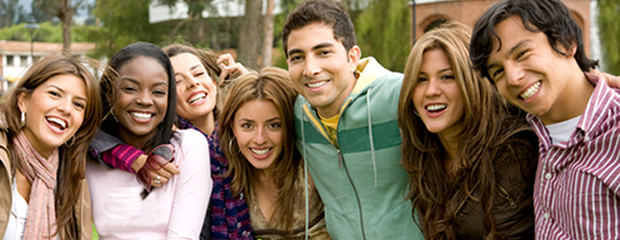
--Does your
campus provide training for campus health care
professionals to increase their sensitivity to the
special health needs of LGBTQ individuals?
--Does your campus participate in an LGBTQ admission
fair designed for outreach to incoming LGBTQ high school students?
--Does your
campus have an LGBTQ graduation ceremony (Lavender
Graduation) for LGBTQ graduating seniors?
--Does your campus have any scholarships specifically
targeting LGBTQ students and heterosexual students who
are supportive of LGBTQ equality?
--Does your campus include LGBTQ issues in new student
orientation programs?
--Does your campus have an LGBTQ mentoring program to
welcome and assist LGBTQ students in transitioning to
academic life and other involvement on campus?
Here TV: College Guide for LGBTQ Students
Resource Guide for LGBTQ
College Students
Religious Universities Living Up to LGBTQ
Values of Inclusion
AGB Magazine: LGBTQ Challenges in Higher Education
Advice on Being Gay in College
LGBTQ Nation: The Worst College Campuses for LGBTQ
Students
Info: College Safe Zone Programs
Things Queer Students Should Know Before Going to
College
Video: Issues LGBTQ Students Might Face
LGBTQ Students More Likely to Leave Home for College in
More Welcoming States
Students Succeed When
Diversity is Valued
Campus Pride: Shame List
of Absolute Worst Campuses for LGBTQ Students
Support for
LGBTQ Business Students
Intelligent: LGBTQ College Student Guide
Advice for LGBTQ Teens
Teach for America: Supporting LGBTQ College Students

Standards for
LGBTQ Programs and Services
Guidelines for Excellence in LGBTQ Support
The Council for the Advancement of Standards in Higher
Education (CAS) has established guidelines for the
directors of various campus programs, including
residence life, Greek organizations, counseling
services, recruiting and admissions, diversity programs,
health services, and more. Their collection of
guidelines also addresses the professional standards for LGBTQ programs and services on college campuses.
According to CAS, it is no longer a matter of whether to
provide services for lesbian, gay, bisexual,
transgender, and queer (LGBTQ) college students, but rather,
it is a matter of when. The talent, energy, and hope
with which LGBTQ students are entering college must be
acknowledged and encouraged. Some students are declaring
their bisexual or homosexual orientations in high
school, then knocking on institutional doors with
expectations of being fully appreciated for who they are
in their entirety, including their sexual orientations.
Many more students enter college questioning their
sexual identities, not yet ready to make pronouncements
nor embrace labels, but they deserve the institution’s
demonstrated acceptance and attention.

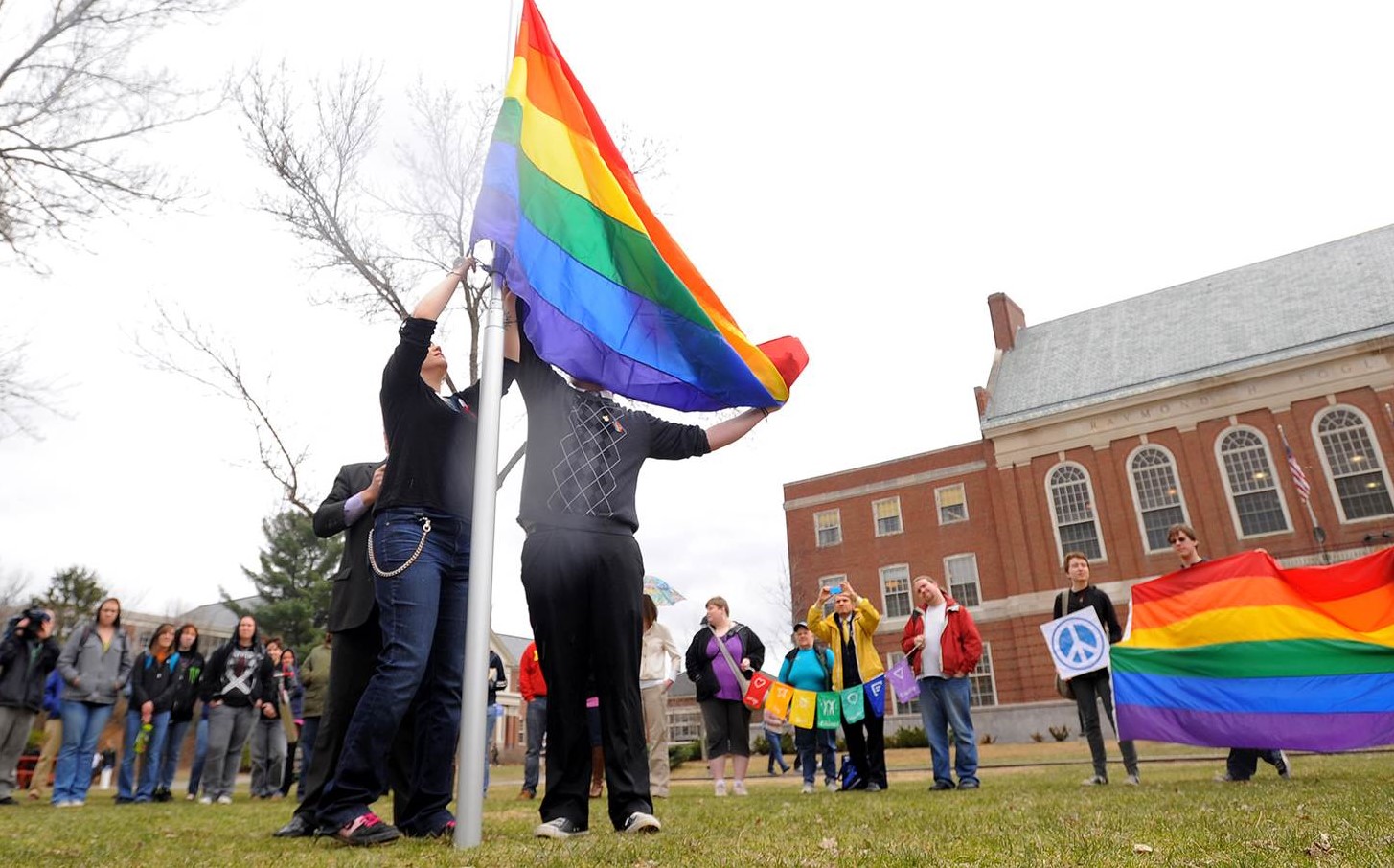
Nearly 100 higher education institutions currently have
full-time professionally staffed offices or centers that
provide services for and about LGBTQ students, faculty,
and staff. Some such services include information and
referral, advocacy, support groups, discussion groups, LGBTQ
student organization advising, safe zones, ally
projects, leadership programs, peer counseling, and
Lavender Graduation celebrations. Some campuses have LGBTQ offices staffed by part-time graduate students,
and some campuses with no actual LGBTQ office or center
employ a person who is responsible for providing
services to LGBTQ students.
Top 25 LGBTQ Friendly Colleges
Best Colleges for LGBTQ Students
Reasons Why Coming Out in College Is
Actually the Best
Most Progressive, Diverse,
Inclusive Universities in the US
Worst List: Colleges That are Unsafe for LGBTQ Students
She’s Marrying Her Sorority Sister
LGBTQ Issues and College Life
Trans College Student Resource Guide
Info: College Safe Zone Programs
The National Consortium of Directors of Lesbian, Gay,
Bisexual, Transgender, and Queer Resources in Higher Education
was officially founded in San Diego in 1997 to provide
support for the professionals in this growing new arena
in student affairs. Beyond membership support, the
Consortium seeks to assist colleges and universities in
developing equity in every respect for lesbian, gay,
bisexual, transgender, and queer students, faculty, staff,
administrators, and alumni. The Consortium also focuses
on developing curricula to enhance its professional
goals, to promote improved campus climates, and to
advocate for policy change, program development, and the
establishment of campus LGBTQ offices and centers.
Minimal data are currently available as to the number of
LGBTQ students on college campuses. Several reasons
exist to explain this fact. First, some surveys
regarding sexual behavior rely on people to
self-disclose same-sex interactions, thoughts, or
feelings. It is unlikely that people will answer such
questions honestly or at all if they do not explicitly
trust the anonymity of the process. Second, some surveys
rely on people to identity themselves through labels
such as homosexual, lesbian, gay, bisexual, or queer. While
some LGBTQ people may use these labels, many others,
especially LGBTQ people of color, may not. Either they
have decided to not attach a label to their
non-heterosexual identity. Or they have not journeyed
through the coming-out process sufficiently to yet
identify with a label. Or they use different
terminology, all of which are the experiences of LGBTQ
college students. Finally, while some people may have
strong feelings of same-sex attraction, it is likely
that they remain in heterosexual relationships or become
non-sexual and never act on their feelings of such
same-sex attraction. Consequently, limited empirical
data exist to identify numbers of LGBTQ students.
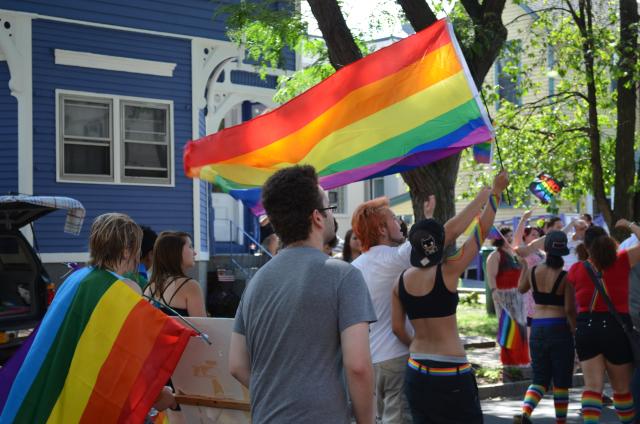
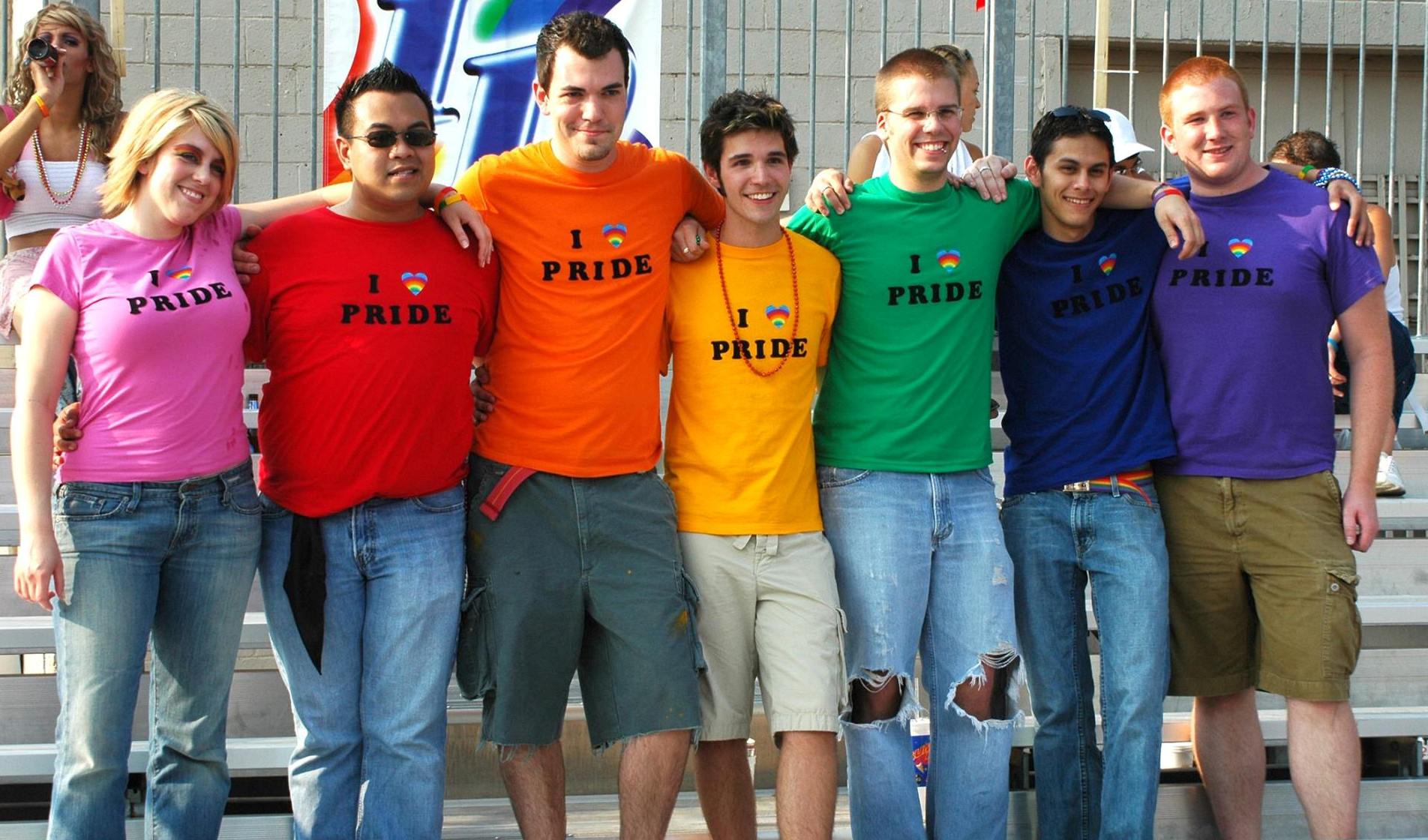
LGBTQ College Student Guide
LGBTQ College Student Support
LGBTQ College Youth Guide
Transgender College Student Guide
Trans College Student Resource Guide
No college or university has sexual orientation or
gender identity boxes on admission forms, and retention
studies related to LGBTQ students have not yet been
conducted. Therefore, when administrators wish to
ascertain the number of LGBTQ students on campuses,
there are few, if any, databases available to provide
such information. Consequently, they find themselves
resorting to asking an openly gay student or staff
member or simply projecting numbers from LGBTQ college
chat rooms.
Like racism, sexism, and other ideologies of oppression,
heterosexism (that only heterosexuality is normal) is
manifested in social customs, institutions, and in
attitudes and behaviors of individuals. Preserved
through the routine operation of institutions, the
maintenance of heterosexism is possible because it is in
keeping with prevalent social norms. Higher education
contributes to the maintenance of institutionalized
heterosexism as evidenced by hate crimes directed toward LGBTQ students, faculty, and staff members. Given that
heterosexism’s values underlie higher education, the
work involved in proactively addressing violence against
LGBTQ individuals and building communities that are
inclusive and welcoming of LGBTQ persons is both
controversial and demanding.
Researchers note that campuses are no longer safe havens
for students, faculty, or staff. Violence is a community
and societal problem that has found its way into
institutions of higher education. Institutions must make
concerted efforts to create campus climates where every
student is safe and every faculty and staff member is
secure in knowing that there will never be another
incident such as the one involving Matthew Shepard at
the University of Wyoming.
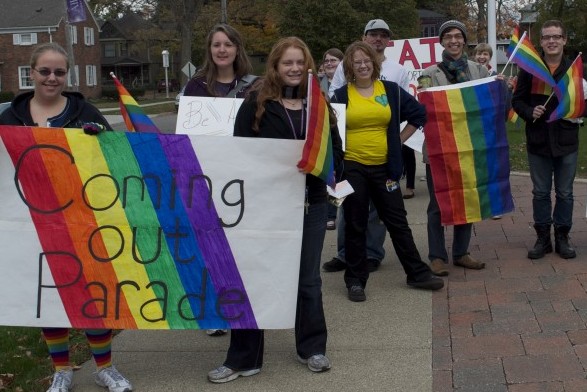
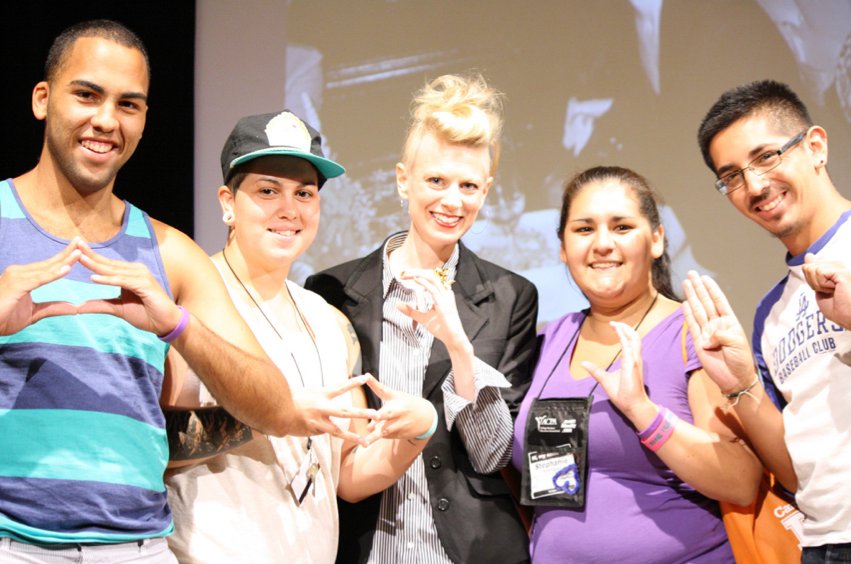
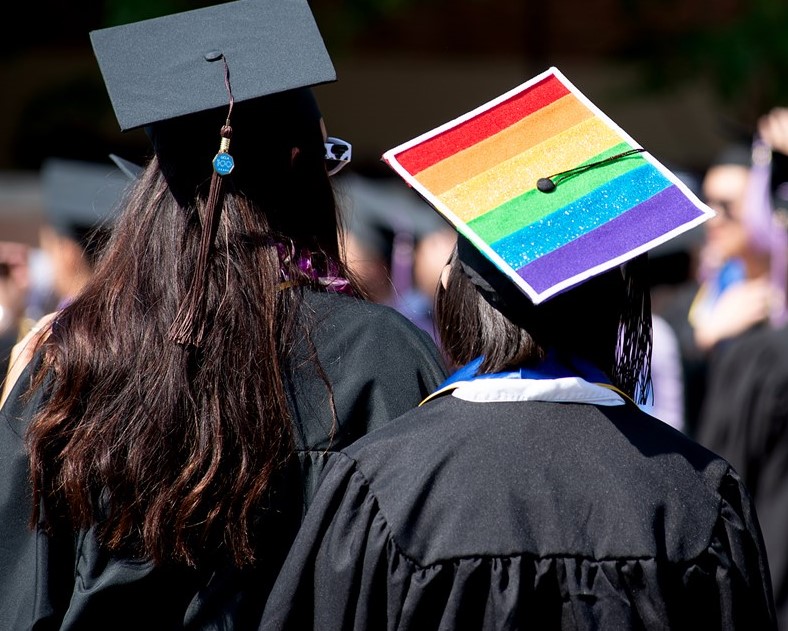
LGBTQ Community Resources for College
Students
Tips for Gay College Students
Top LGBTQ Friendly Colleges and Universities
LGBTQ College Statistics
Great Value Colleges: LGBTQ Friendly Campuses
LGBTQ
Scholarships
College Guide: Scholarships for LGBTQ Students
List of LGBTQ and LGBTQ Friendly Fraternities and
Sororities
CAS provides a framework for building and maintaining an
effective LGBTQ campus program. It offers resources and
assessment tools to help higher education administrators
and directors of LGBTQ programs consider all the factors
relevant to ensuring their LGBTQ program is successful.
By using CAS's published guidelines, directors of LGBTQ
programs can consider such aspects as the mission,
purpose, program elements, learning outcomes,
developmental goals, leadership, organization, training,
financial issues, legal responsibilities, external relations, ethics, and assessment.
Among the important standards outlined by CAS regarding
effective LGBTQ campus programs are the following
statements:
The formal education of students consists of the
curriculum and the co-curriculum, and must promote
student learning and development that is purposeful and
holistic. Lesbian, Gay, Bisexual, Transgender, and Queer
(LGBTQ) Programs and Services must identify relevant and
desirable student learning and development outcomes and
provide programs and services that encourage the
achievement of those outcomes.
Relevant and desirable outcomes include: intellectual
growth, effective communication, realistic
self-appraisal, enhanced self-esteem, clarified values,
career choices, leadership development, healthy
behaviors, meaningful interpersonal relationships,
independence, collaboration, social responsibility,
satisfying and productive lifestyles, appreciation of
diversity, spiritual awareness, and achievement of
personal and educational goals.
LGBTQ programs and services must: Advocate for the
creation of a campus climate that is free from
harassment and violence. Identify environmental
conditions that negatively influence student welfare.
Advocate for solutions to be enacted that neutralize
such condition. Work to create policies and procedures
within the institution that promote and maintain a
hospitable climate.
LGBTQ programs and services must promote institutional
understanding for the concerns of LGBTQ students,
faculty, and staff. Educate other campus programs and
services to be responsive to the unique concerns of LGBTQ students.
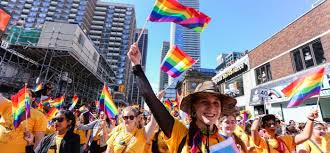
LGBTQ Student Experience Guide
LGBTQ State Specific Program Details
LGBTQ Scholarship Guide
LGBTQ Safety Resources
These programs and services must include:
Individual and group psychological counseling such as:
coming out support, services for victims and
perpetrators of homophobia, services to address family
issues, services to address same sex dating issues,
services to address same sex domestic violence, and
support for victims and perpetrators of hate crimes.
Health services such as: health forms with inclusive
language, LGBTQ health issues brochures, safer sex
information for same sex couples.
Career services such as: resume development, information
on LGBTQ friendly employers, employer mentoring programs
for LGBTQ students, information on LGBTQ issues in the
workplace, and academic advising such as the support of
students’ educational choices
LGBTQ programs and services must provide educational
opportunities that include: Examination of the
intersection of sexual orientation with race, class,
gender, disability, and age. Promotion of self
awareness, self-esteem, and self-confidence. Promotion
of leadership experiences. Identification of and
networking with role models and mentors. Support of
students and their families in achieving academic
success.
This College Track & Field Star is Breaking Records as
His Authentic Gay Self
Huff Post Queer Voices: LGBTQ College Student Reports
Study Abroad: Most LGBTQ Friendly Countries
My College Roommate Became a Close
Friend... Then I Started to Develop Feelings
Video: Issues LGBTQ Students Might Face
Chronicle of Higher Education: What LGBTQ Students Want
Their Professors to Know
Physical and Emotional Health Concerns of LGBTQ College
Students
Intelligent: LGBTQ College Student Guide
The Atlantic: Is College More Dangerous for LGBTQ
Students?
Religious Universities Living Up to LGBTQ
Values of Inclusion
The Complicated Past and Promising Future of Queer
Studies
College Guide: Resources for LGBTQ Students
Students Succeed When
Diversity is Valued
Reasons Why Coming Out in College Is
Actually the Best
Commencement
Address for All Queer College Graduates
Dear Class of 2020
Congratulations queer college graduates of 2020 on this
very important and hard-won milestone. Since you are not
able to partake in the usual pomp and circumstance, I
wanted to share with you my commencement address.
For some of you these years at college were your
extraordinary time of coming out, declaring yourself,
standing and saying, “This is me,” against all odds.
Some of you came to college already out, ready to spread
your wings even farther. For those of you not yet out,
who studied and toiled all these years from the closet,
you too have achieved a herculean task.
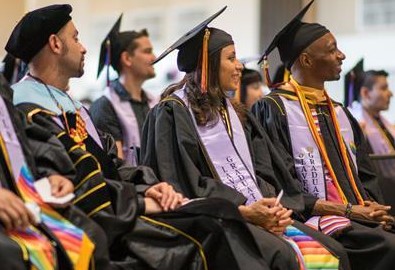
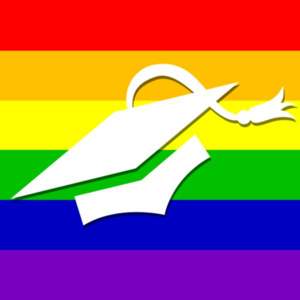
As you enter adulthood, joining our vast, colorful,
extraordinary, mischievous community, keep in mind we
have no litmus test for entry. You can be out, you can
be closeted, you can be prideful or self-loathing, you
can declare your gender identity at 11 years old or stay
in the closet till you’re middle-aged, all are welcome.
As you stand on the precipice of this next chapter of
your lives, I understand how grim and hopeless it must
feel. We are in unchartered times and we don’t know what
comes next and if what we all thought was normal, will
ever be the same. I am not an economist or futurist, so
I don’t have any qualifications to speak on what may be
in store for you. But I do have experience graduating
college during a dark time for our community; during
another plague.
I graduated NYU in 1987 at which time there were 50,378
cases of AIDS in the US and 40,849 deaths. That was the
year the US government barred HIV-infected travelers
from entering the country. While there are so many
differences between AIDS and COVID-19, fear and despair
are familiar to me.
John Mulvaney: Dear Class of 2020
Hope, Wish and Prayer for 2020: Protection for LGBTQ
Americans
Alicia Keys:
Dear Class of 2020
Impact of COVID 19 on Vulnerable LGBTQ College Students
Billy Porter: LGBTQ State of the Union
Katy Perry:
Dear Class of 2020
LGBTQ Elders Share Their Thoughts About Today's Queer
Youth
Colin Jost: Dear Class of
2020
Penn State Univ: Message of Support for LGBTQ Pride 2020
Barack and Michelle Obama:
Dear Class of 2020

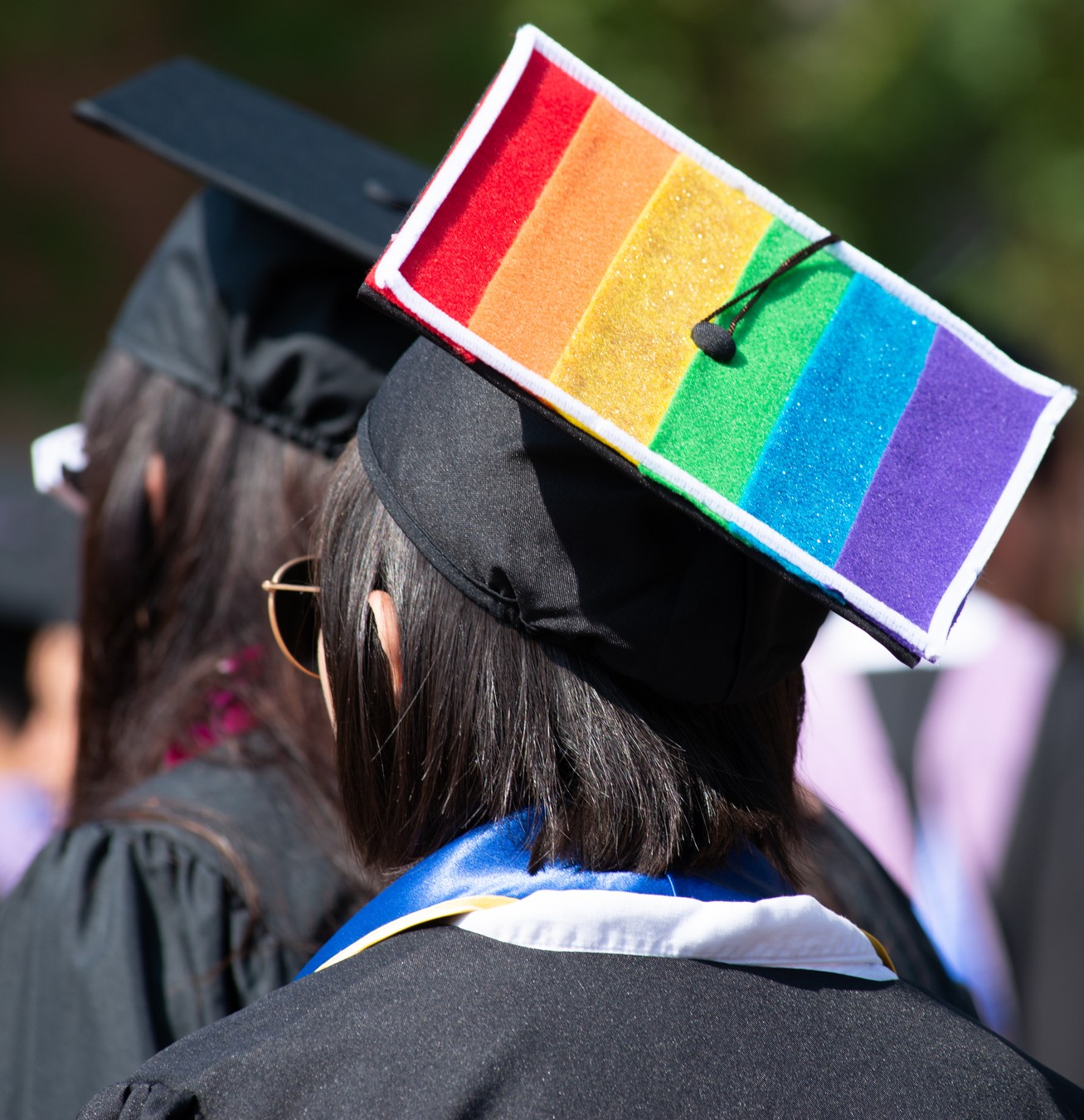
So what does the future hold for you? None of us know.
But that’s where your opportunity is. All our lives,
queer people have had to create ourselves, create our
lives, create our families, our communities, our own
safe spaces. This period, where the world can be rebuilt
anew, created again, was made for us queers. This is
what we do. We aren’t wedded to what was, because what
was had never been intended for us. Now, you get to make
a more just, more equitable world. You get to widen the
margins so as to erase them. Creativity is the lifeblood
of our lives and you can bring it to bear on the
systemic problems that have been laid bare by this virus
and deploy our greatest asset, empathy. Our world needs
to heal and who better to lead that healing than us?
We queer people live and see things not as they are but
as we make them. The gift of our queerness is that your
otherness helps you to see things differently. You can
redefine what it means to be essential in America. But
first you must make your queerness essential to your
lives. Do not diminish yourselves. Do not diminish your
queerness. The way to deal with your otherness is not to
soften the edges, not to find the ways to fit in or to
pass. It is to double down, to exploit and to expose all
those parts of you that are other. Those elements of
your otherness are your deep well of creativity and
divinity. Your answers reside in your singularity and
difference. By amplifying your otherness, you unlock
your promise and potential.
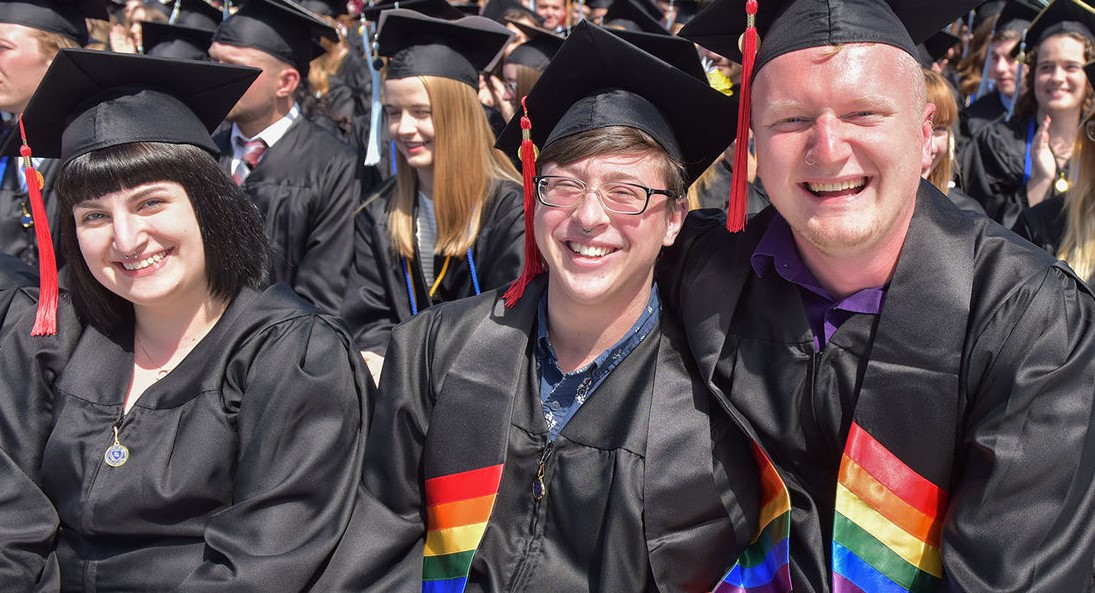
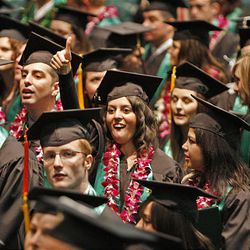
Barack Obama: Dear Class of 2020
Commencement Address for All Queer College Graduates
Michelle Obama:
Dear Class of 2020
Virtual Lavender Graduation Ceremony
Schitt's Creek Cast and
Mariah Carey: Dear Class of 2020
Lady Gaga:
Dear Class of 2020
When Leaving Campus Means Going Back Into the Closet
Beyonce Knowles:
Dear Class of 2020
Happy New Year: Anxiety and Hope for LGBTQ Americans in
the 2020s
Robert Gates:
Dear Class of 2020

Your otherness breeds empathy, emboldens ideas, and
expands boundaries. Build up your resolve to expose your
specialness. The way to stoke it is to revel not only in
your own otherness, but in the big, wide, diverse
community of otherness of which you are now a part. I
would ask you to look at your work lives and see where
you can be of service — public service, medicine,
science. And especially the arts. Artists, writers,
poets will explain all this to us. And who among you
will be the activists, the agitators? We need you now.
Part of your responsibility is to work to improve the
lives of everyone in our community. Our initialism,
LGBTQ, is not just stripes on our flag so everyone feels
represented. It is our bond. We rise and fall, survive
and thrive together. Oppression cannot be a gateway to
victimhood, and mere tolerance is not adequate. Do not
diminish who you are to find some acceptability. Do not
connect your self-esteem with acceptance. You cannot
make your queer life small so as not to cause a wave. Do
not let hate seep into your profile; do not bow out or
retreat because the obstacles seem so great.
As you set out to not just rebuild but rejuvenate and
improve our world, be sure to build your own personal
foundation as well. Be ambitious in your personal life.
Prioritize your heart, especially now, during this
pandemic and its uncertain aftermath. Loving someone and
being loved are life-saving. So go forth class of 2020
and trust in your queerness. It will provide.
[Source:
Richie
Jackson, Theatre, Television and Film Producer, May 2020]
Schitt's Creek and Mariah Carey: To the Class of 2020
Barack Obama: Dear Class of 2020
Commencement Address for All Queer College Graduates
Michelle Obama:
Dear Class of 2020
Virtual Lavender Graduation Ceremony
Schitt's Creek Cast and
Mariah Carey: Dear Class of 2020
Lady Gaga:
Dear Class of 2020
Beyonce Knowles:
Dear Class of 2020
Happy New Year: Anxiety and Hope for LGBTQ Americans in
the 2020s
Robert Gates:
Dear Class of 2020
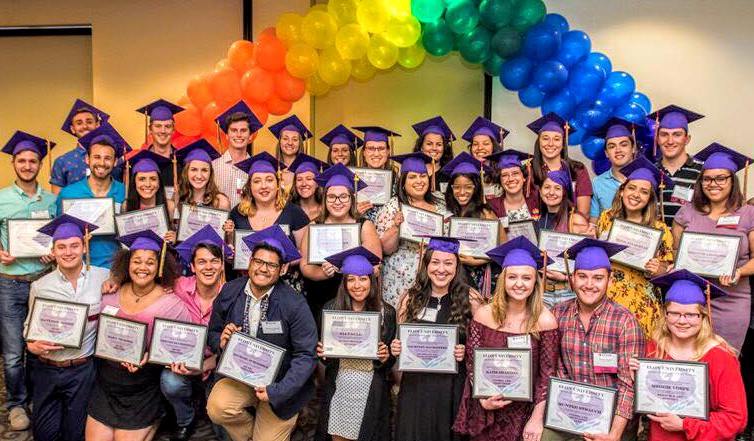
Lavender
Graduation
Celebration for LGBTQ Grads
Lavender
Graduation is an annual ceremony conducted on numerous
college campuses to honor lesbian, gay, bisexual,
transgender, and queer students and to acknowledge their
achievements and contributions to the University.
The
Lavender Graduation Ceremony was created by Dr. Ronni
Sanlo, a Jewish lesbian, who was denied the opportunity
to attend the graduations of her biological children
because of her sexual orientation. It was through this
experience that she came to understand the pain felt by
her students. Encouraged by the Dean of Students at the
University of Michigan, Dr. Sanlo designed the first
Lavender Graduation Ceremony in 1995.
The first
Lavender Graduation honored three graduates. By 2001,
there were over 45 Lavender Graduation Ceremonies at
colleges and universities nationwide. Graduating
students, including undergraduates and graduates, are
invited to take part in the celebration, which occurs
each year the week prior to university-wide commencement
events.
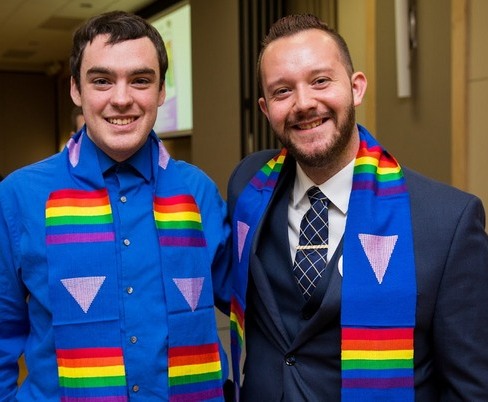
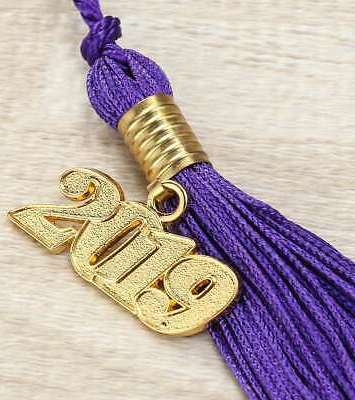
HRC: What is Lavender Graduation?
Lavender Graduation Notes and History
Campus Pride: Lavender Graduation
Info/Samples: Lavender Graduation
Program
For decades students at colleges and universities around
the country have been celebrating both their academic
achievements and their cultural heritages at specialized
commencement events. Many of these events are
student-initiated and usually occur during the
university-wide commencement weekend. These events
provide a sense of community for minority students who
often experience tremendous culture shock at their
impersonalized institutions. For many students they are
the payoff for staying in school, and friends and
families find the smaller, more ethnic ceremonies both
meaningful and personal.
Lavender Graduation is a cultural celebration that
recognizes LGBTQ students of all races and ethnicities
and acknowledges their achievements and contributions to
the university as students who survived the college
experience. Through such recognition LGBTQ students may
leave the university with a positive last experience of
the institution thereby encouraging them to become
involved mentors for current students as well as
active alumni.
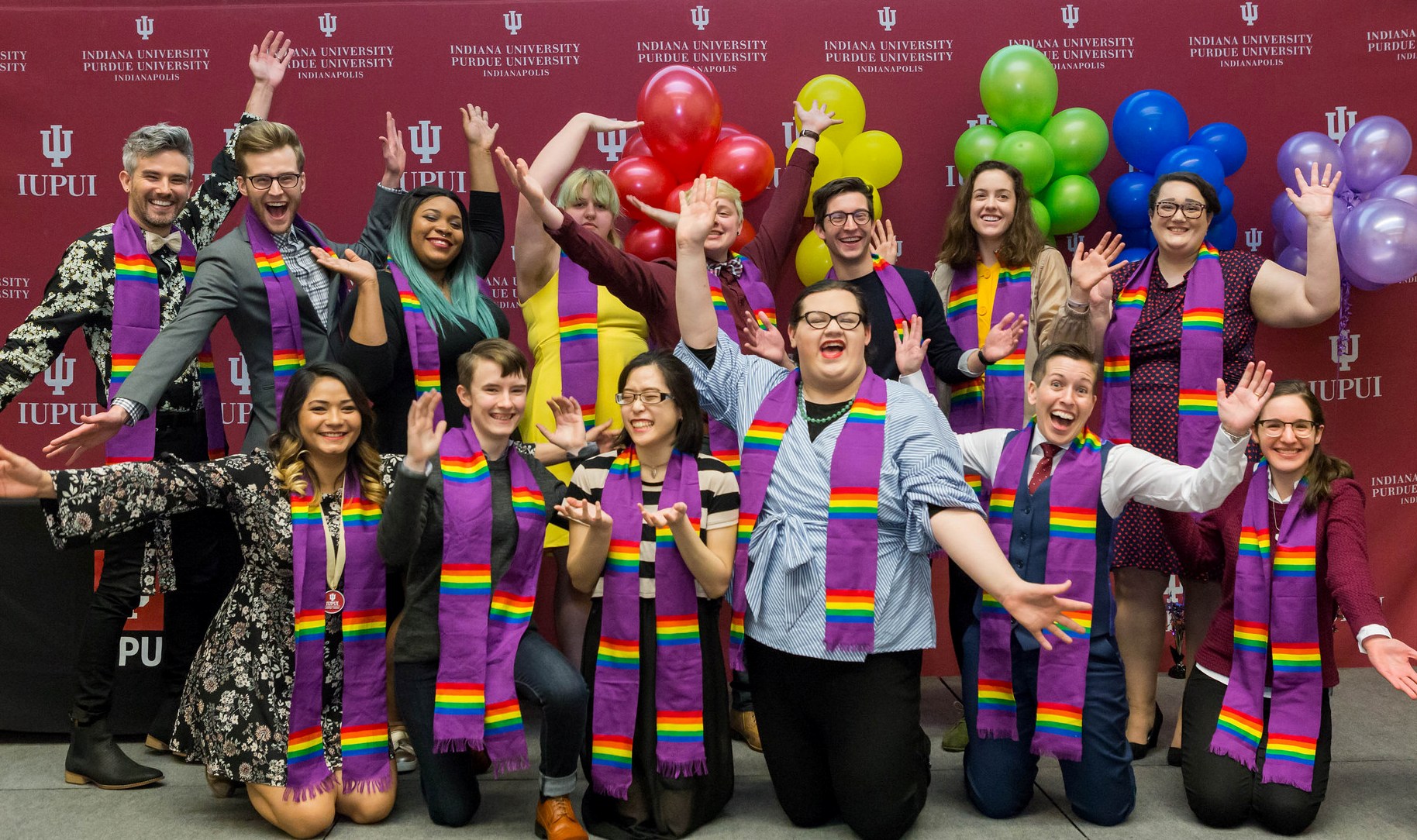
Lavender Graduation is an event to which LGBTQ students
look forward, where they not only share their hopes and
dreams with one another, but where they are officially
recognized by the institution for their leadership and
their successes and achievements.
Like other commencement ceremonies, lavender graduation
ceremonies typically include a guest speaker;
presentation of certificates; presentation of awards; special stoles,
cords, and
tassels; refreshments afterwards; and, of course, a reading of graduates' names. Attendance
is open to family, friends, students, faculty, staff,
allies, and all members of the campus LGBTQ community.
It is usually held before formal commencement.
The ceremony takes its name (and sometimes the color of
tassels, caps, cords, stoles, or other items)
from the significance of the color lavender in the LGBTQ
community. Some campuses use rainbow tassels, cords, caps, or
stoles.
Most LGBTQ-Friendly Colleges and
Universities in the US
Kamala Harris College Tour Inspiring Critical Generation
of Young People in Fight for LGBTQ Rights
Texas and Florida Schools Excluded From
LGBTQ-Friendly College List Over New State Laws
Ron DeSantis Wants to Scrub AP Classes of
LGBTQ Subjects
LGBTQ 2023: The Rising
Tide
Campus Pride: The Worst List 2022
Florida Bill Targets Diversity Studies at
State Universities
Huff Post Queer Voices: LGBTQ College Student Reports
Support for
LGBTQ Business Students
Most Progressive, Diverse,
Inclusive Universities in the US
Trans College Student Resource Guide
Info: LGBTQ Affirming Colleges, Companies, Cities
Resource Guide for LGBTQ
College Students
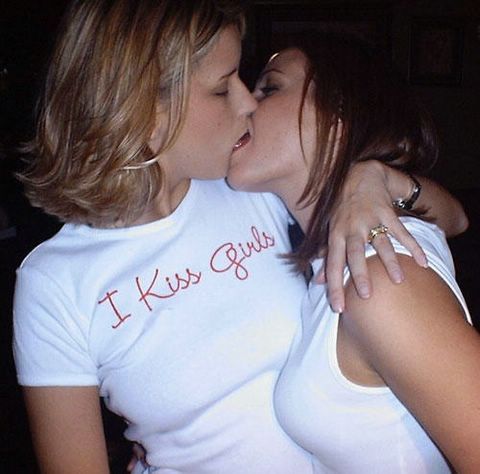
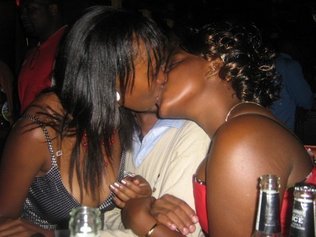
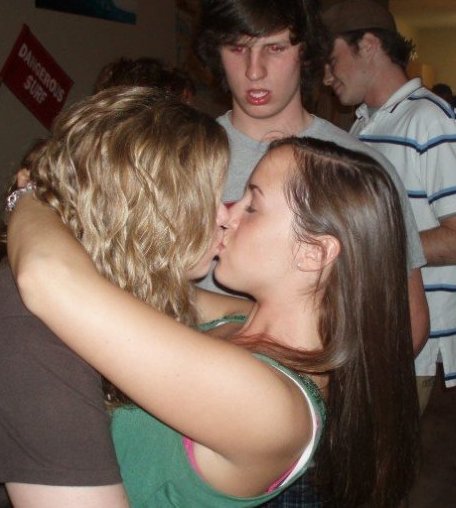
Lesbian Until
Graduation
Temporary period of sexual exploration
The LGBTQ slang terms lesbian until graduation (LUG),
gay until graduation (GUG), and bisexual until
graduation (BUG) are used to describe women primarily of
high school or college age who are assumed to be
experimenting with or adopting a temporary lesbian or
bisexual identity during their college years. The term
suggests that the woman to whom it is applied will
ultimately adopt a strictly heterosexual identity after
she leaves campus.
In a 1999 article in the Seattle Weekly, A. Davis
related her experimentation with same-sex relationships,
and how as a result, she experienced hostility from
lesbian friends who pressured her to identify as a
bisexual, including one friend who urged her to do so as
a political statement, despite the fact that Davis
identifies as a heterosexual who merely experimented
with women for a brief period. Davis claimed that women
who experienced same-sex relationships are more attuned
to LGBTQ issues, and more likely to oppose
discrimination.
The “lesbian until graduation” is the cultural archetype
of a usually white, privileged, overeducated girl who
“experiments” with same-sex relationships in college
either as part of a rebellion against her
parents/hometown/former life as a high schooler with a
curfew or as the result of a newfound feminist political
consciousness that can only truly be manifested by
touching another girl’s vagina.
Its pervasion of mainstream consciousness can perhaps be
traced back to the 2003 New York Magazine article “Bi
For Now," which uses the term “hasbian” to refer to LUGs
in their latter years.
Lesbian Until Graduation
The Cut: I Was a Four Year Queer
After Ellen: The Truth About LUGs

LGBTQ College
Programs and
Services
LGBTQ
Scholarships
Point
Foundation
Pride Foundation
Human Rights Campaign LGBTQ Scholarship Database
Lend Edu LGBTQ Scholarships
Fin
Aid Guide to LGBTQ Scholarships
Fast Web List of LGBTQ Scholarships
Campus Pride LGBTQ Scholarship Database
College Scholarships for LGBTQ Students
Student Debt Relief
LGBTQ
Fraternities and Sororities
Delta Lambda Phi Fraternity
Alpha Pi Delta
Sorority
Sigma Phi Beta
Fraternity
Kappa
Alpha Lambda Sorority
Alpha Lambda
Zeta Fraternity
Gamma Rho Lambda
Sorority
Zeta Delta Xi
Co-Educational Fraternity
List of LGBTQ and LGBTQ Friendly Fraternities and
Sororities
HOME
QUEER CAFE
│ LGBTQ Information Network │ Established 2017
|